| Hollywoodland | Oct 14 2017 |

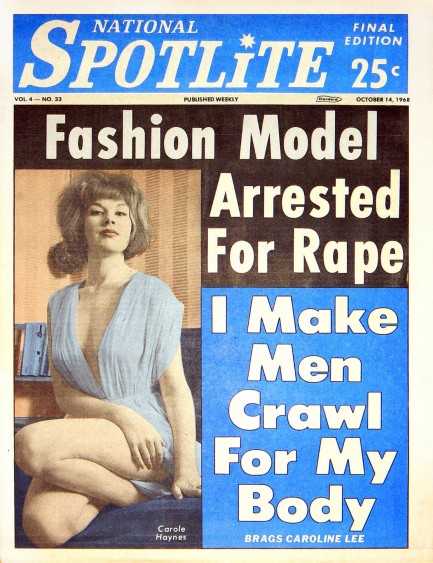
We're back to National Spotlite with a cover published today in 1968. The photo is of actress Carolyn Haynes, and a headline goes to actress Caroline Lee, who says she makes men crawl for her sexual favors. The money quote: “If women use their bodies the right way they can be the most powerful people on Earth.” A quote like that sounds suspiciously like it was fabricated by a man, and in fact while several Caroline Lees appear on IMDB, none fit the profile required to have done this interview—i.e. born sometime in the 1940s or possibly in 1950. National Spotlite is busted again. The editors simply could never have imagined a globally accessible actor database. We also did a search on Haynes and likewise learned she never existed
But some of the celebs are real. In Spotlite's “Dateline: The World” feature readers are treated to a photo of Chris Noel. It's been a long time since we've seen her—eight years to be exact. Spotlite tells us she smashed a vase over the head of a nightclub employee when he tried to force his way into her dressing room in Sydney one night. “The man attempted to romance her but she spurned every overture he made. When he tried to use violence to get his way she spilt open his skull.” We found no mention of the incident in any other source, but we like the story for how it turns out. If her assailant had known anything at all about Chris Noel he'd have rememberd her publicity tours of Vietnam and realized she was one tough celeb.
“Dateline: The World” next regales readers with a tale out of Africa. "Cary Grant arrived in Nairobi to join a hunting safari and has been escorting two six-foot dark-skinned native girls to whatever cafes in town they can get into, and has caused quite a bit of controversy by doing so. Grant traded punches with a man in one spot when the gent took offense at Cary's dates. Cary flattened the man, but the stranger rose to his feet flashing a knife and only the quick efforts of the bartender and cafe owner averted further trouble for the star. Cary and the girls fled while the others were subduing the knife wielder."
Paris: "Juliette Prowse was detained the other night after she threw a make-up case through the window of a drug store. She had purchased some cosmetics at the American Drug on the Champs-Élysées, but brought the order back the same night. She claimed that she'd made a mistake and didn't need the cosmetics. The salesman explained that he would exchange the merchandise or give Prowse credit, but no cash refund. Juliette roared out of the place. Outside she hurled her make-up case through the store's front window. Two policemen saw her smash the window and nabbed her on the spot."
Beirut: "David Niven and wife Hjordis ran into an embarrassing situation in a night spot while making the cafe rounds in this Lebanese city. A belly dancer took such a fancy 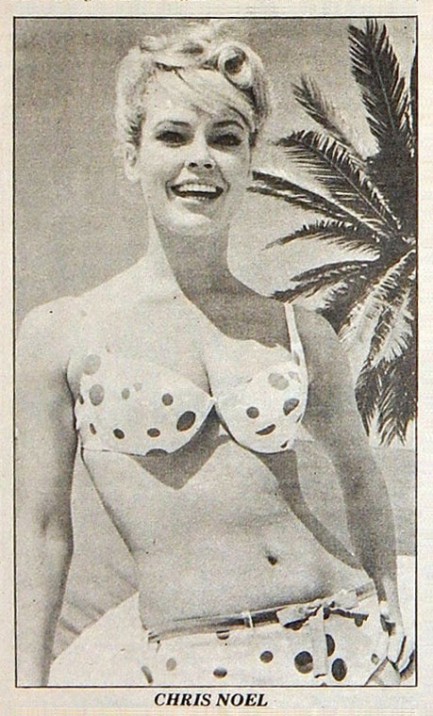 to David that she did her act for him alone. She even sat on his lap. The patrons objected to her performing for just one man and began to throw things at her and at Niven. David and Hjordis ran for the exits after he pushed the girl off his lap."
to David that she did her act for him alone. She even sat on his lap. The patrons objected to her performing for just one man and began to throw things at her and at Niven. David and Hjordis ran for the exits after he pushed the girl off his lap."
Capri: "Noel Coward is nursing bruises on his face. He says he was attacked by two young men while he was out strolling one night. The muggers made off with a pair of cuff links given to him by Raquel Welch and a watch from Greta Garbo. Coward was found half-conscious and bleeding."
You get the gist—celebs in trouble. Back during the heyday of tabloids Confidential had bellhops, bartenders, chauffeurs, maîtres d'hôtel, and cops by the hundreds phoning in hot tips, but Spotlite was never more than a second tier rag and could not have had the resources to uncover the above stories. Therefore the editors either made them up or lifted them from other tabloids. We suspect the latter—with the stories ginned up for entertainment value. Cary Grant in Nairobi with two Kenyan escorts? We'll buy it. Grant risking his million dollar mug in a fistfight? Improbable. But the stories sure are fun. See more from National Spotlite by clicking here.
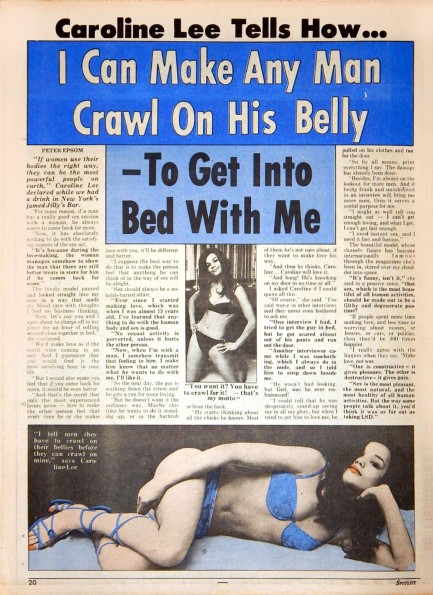
| Vintage Pulp | Feb 22 2017 |

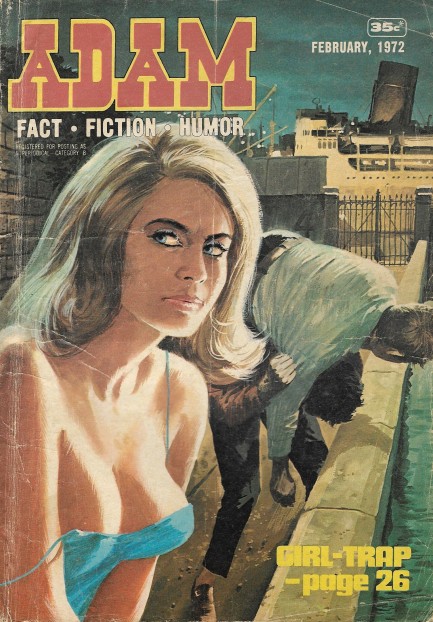
This is the fiftieth issue of Adam we've shared, which is a milestone of sorts for our website, considering how hard the magazine is to obtain. The cover illustration depicts the moment in John P. Gilders' story “Girl Trap” when a body is dumped in Sydney Harbor, theoretically to be carried out to sea on a receding tide. The hero had intervened to stop a woman from being beaten by her violent boyfriend only to stand by in horror as she shot the guy dead. He soon discovers that the woman is actually a prostitute and the boyfriend was her pimp. Cops eventually get involved but the hero skates because the police “just know” he isn't a murderer. The story is as bad as it sounds, but on the plus side it's short.
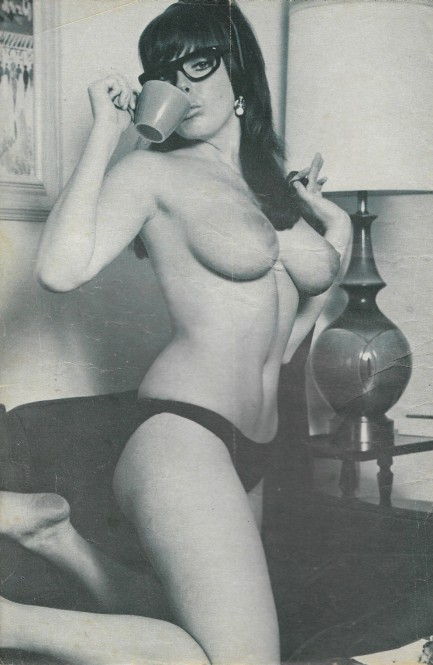
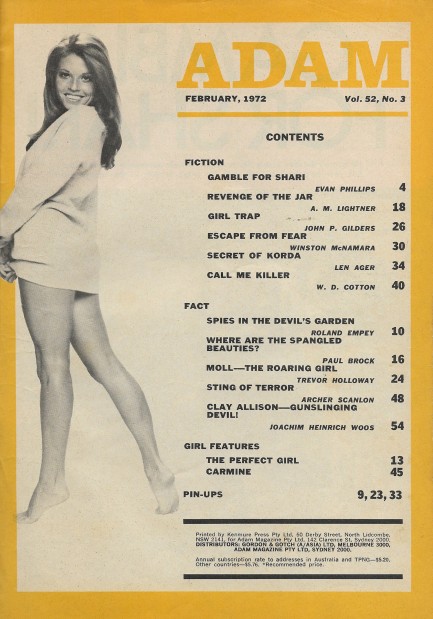
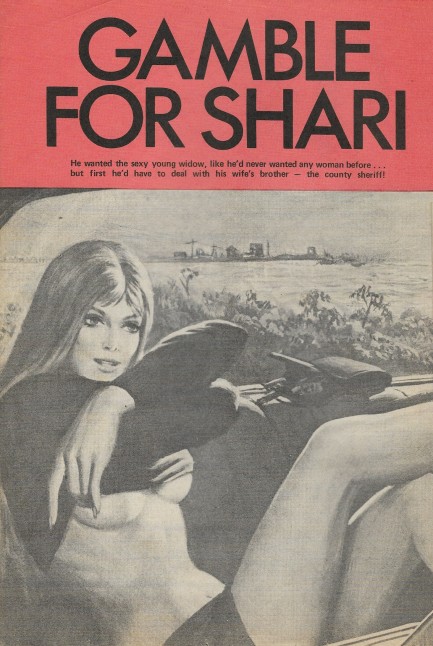
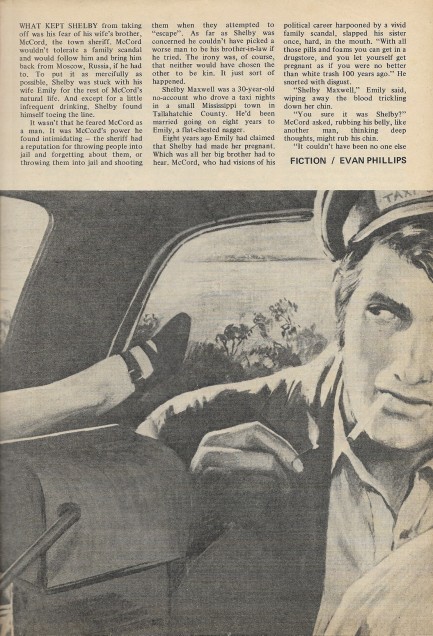
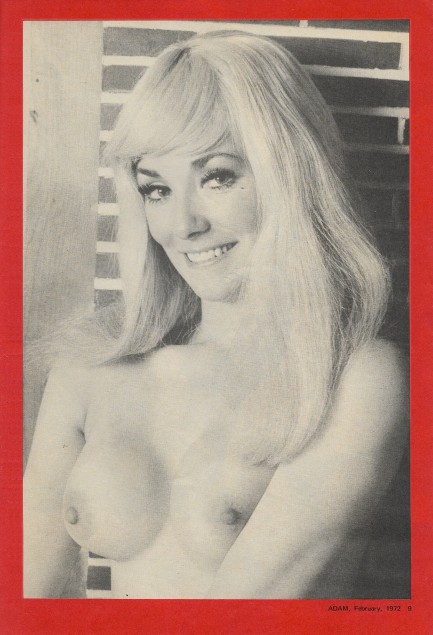
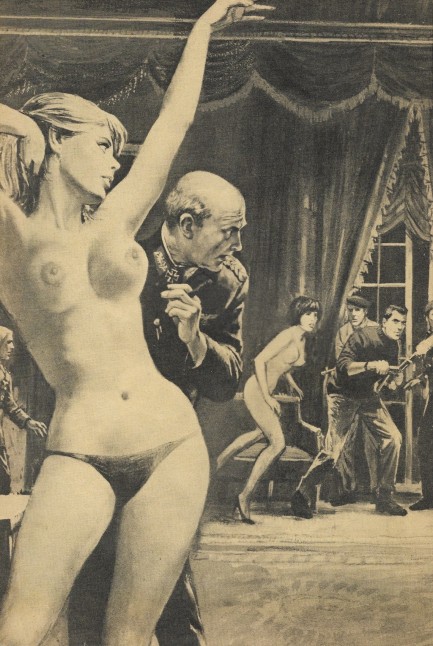
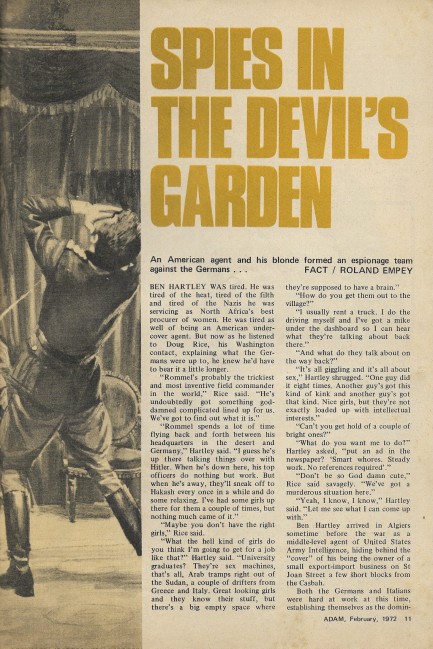
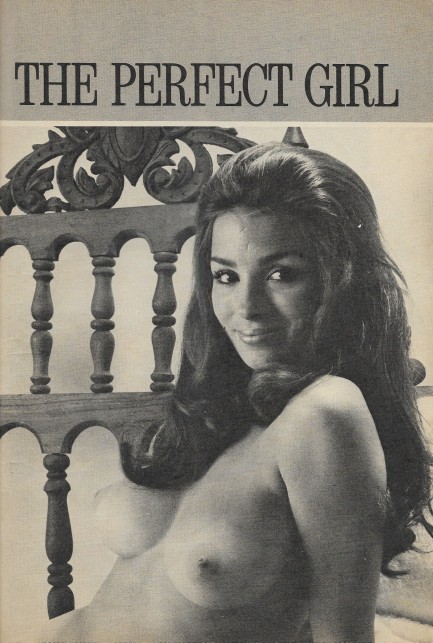
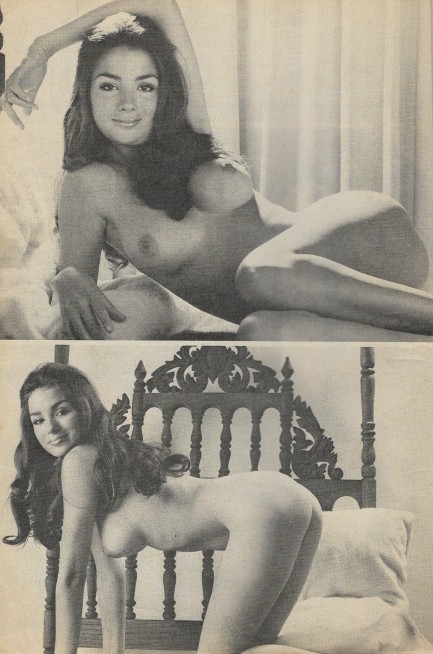
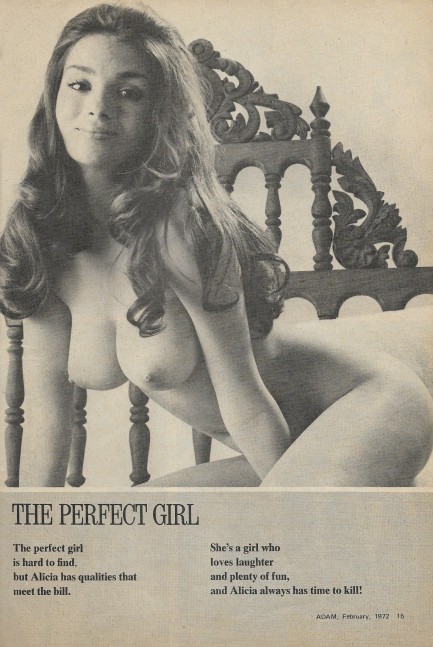
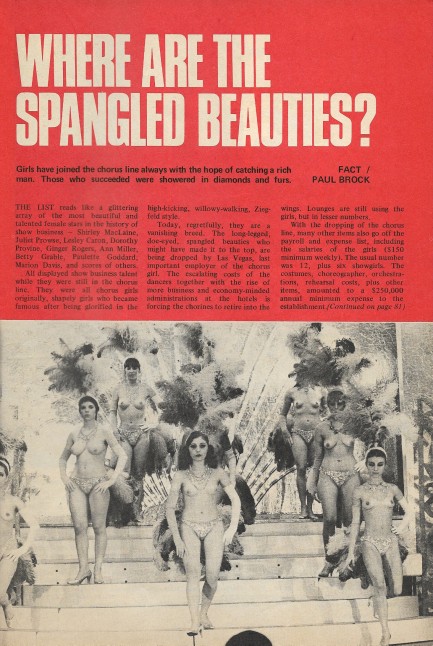
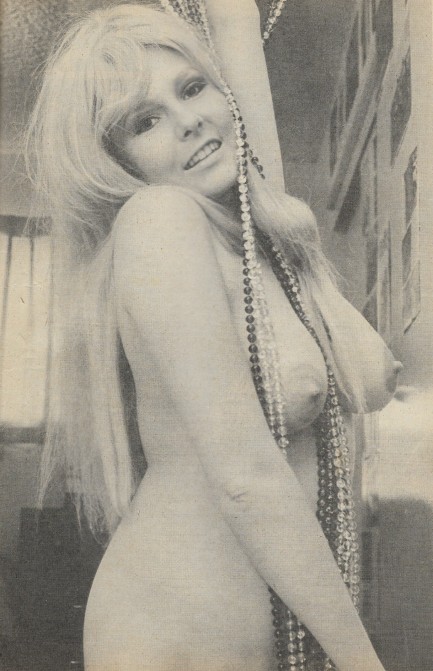
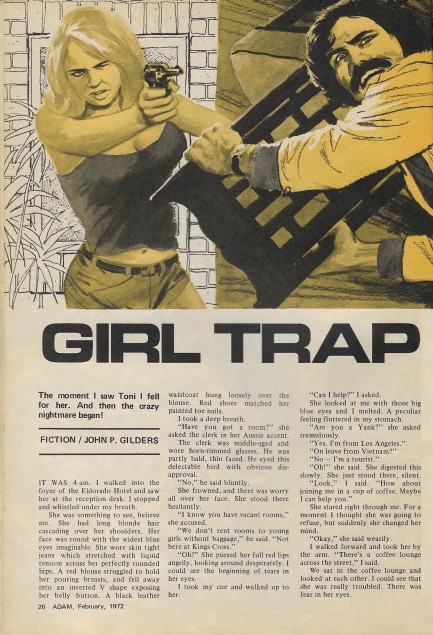
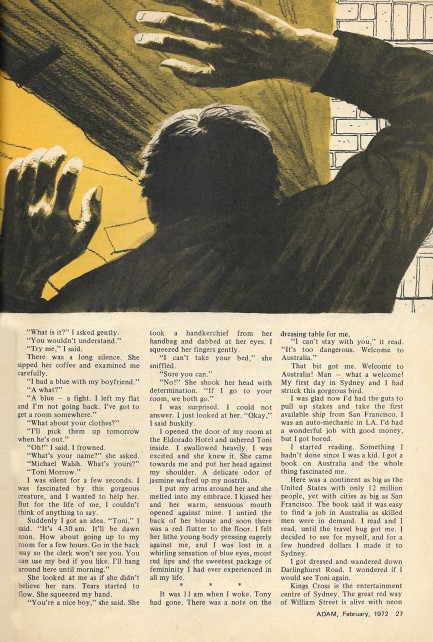
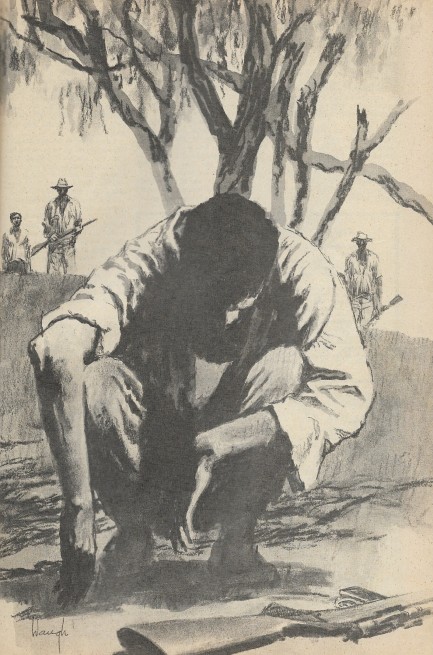
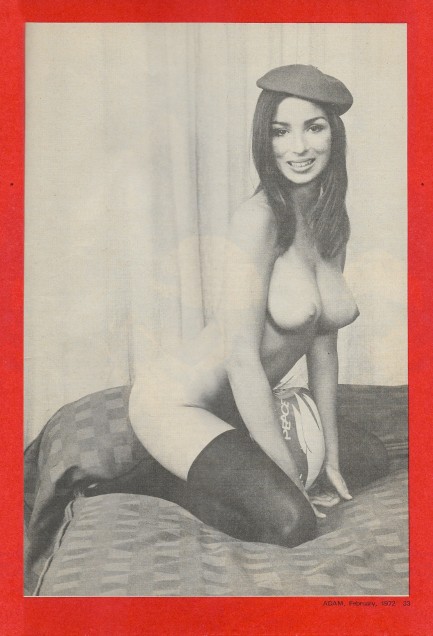
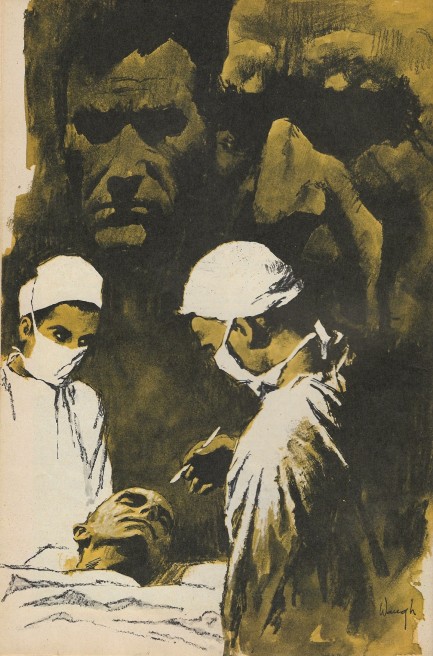
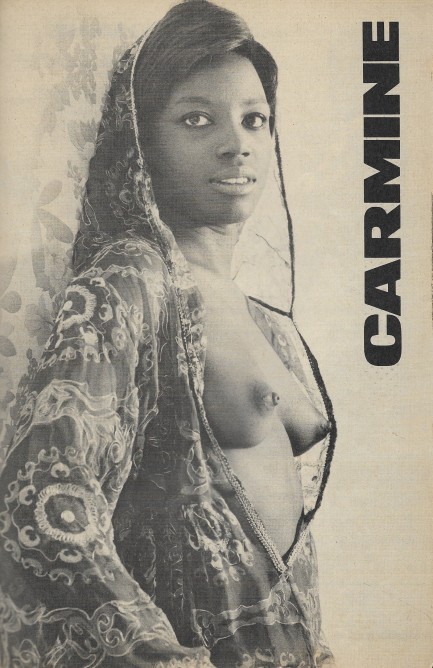
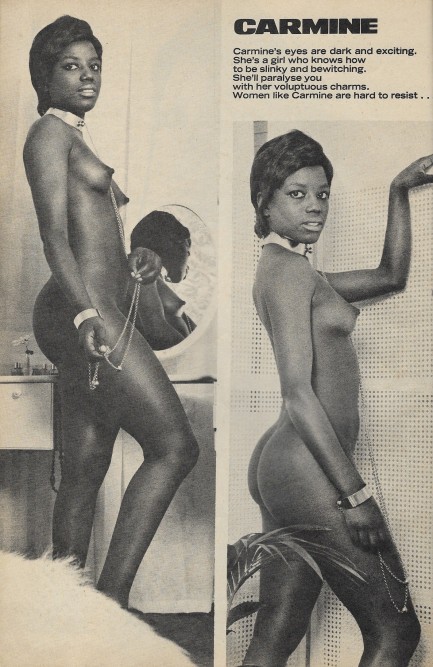
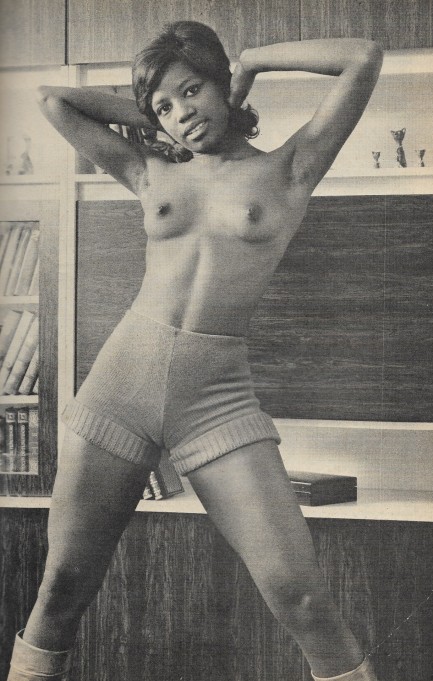
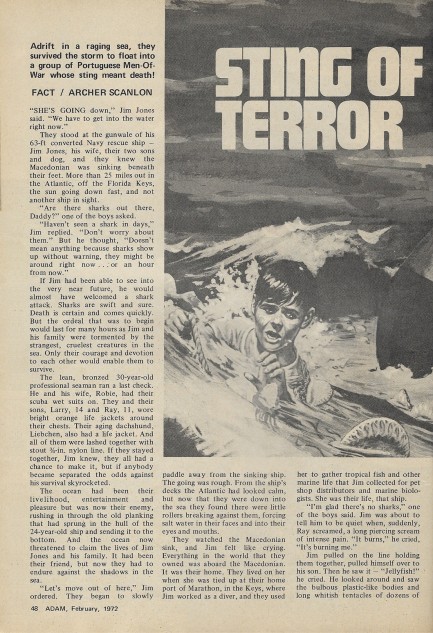
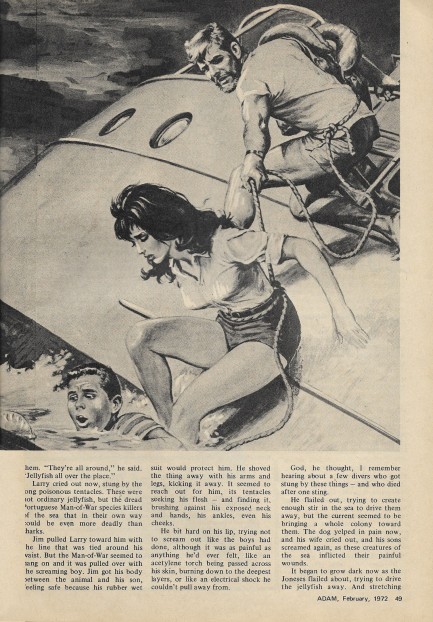
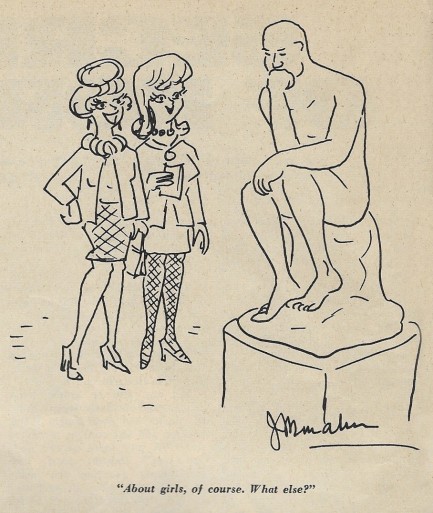
| Vintage Pulp | Oct 18 2016 |

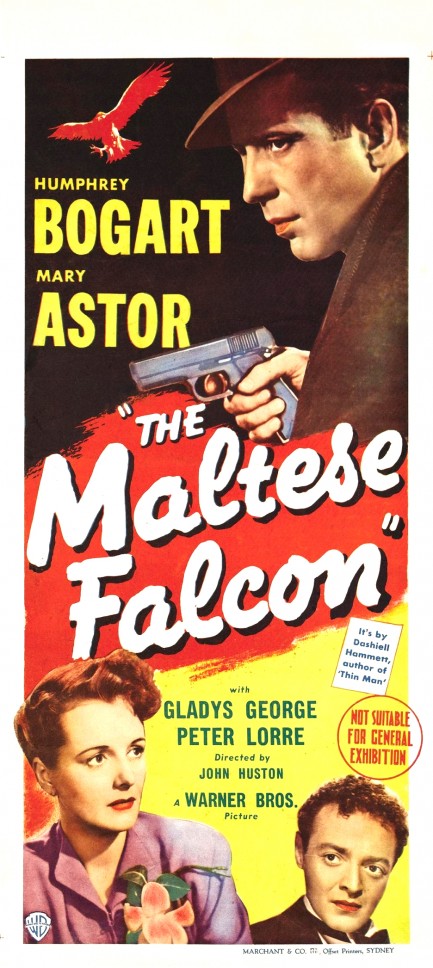
The Maltese Falcon is considered by most scholars to be the first major film noir. It was also one of the best, with legendary talents John Huston, Humphrey Bogart, and Peter Lorre coming together to make magic. Mary Astor was excellent too. This must-see film premiered in the U.S. today in 1941, but the poster above—one you don't see often—was made for its run in Australia. Put this film in the queue if you haven't seen it. And if you have, well, watch it again.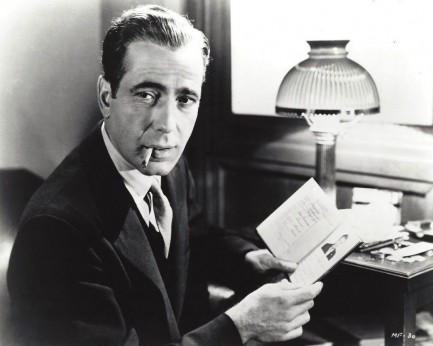
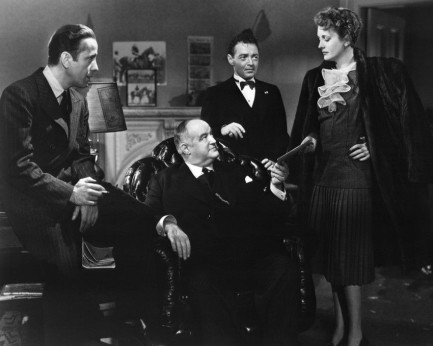
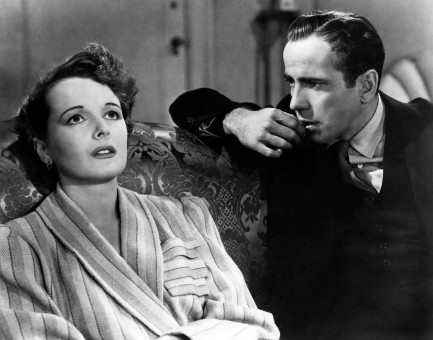
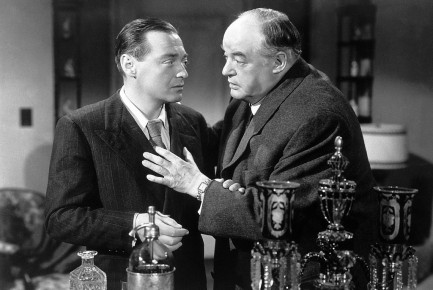
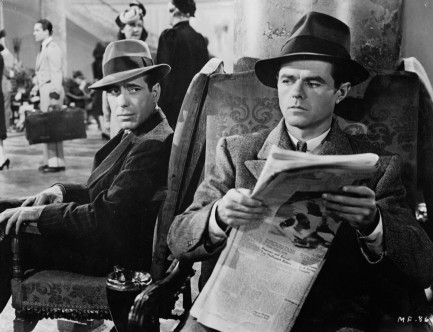
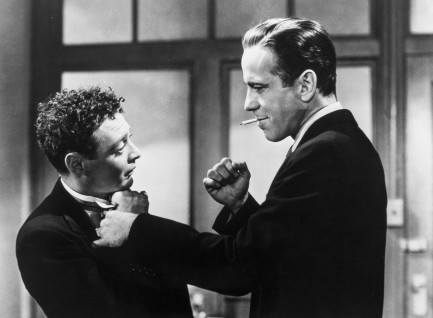
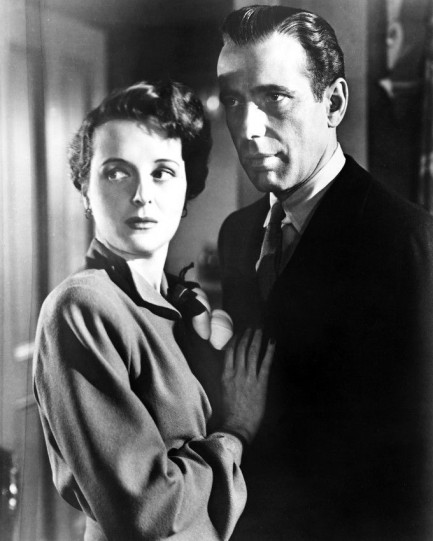
| Intl. Notebook | Apr 1 2015 |

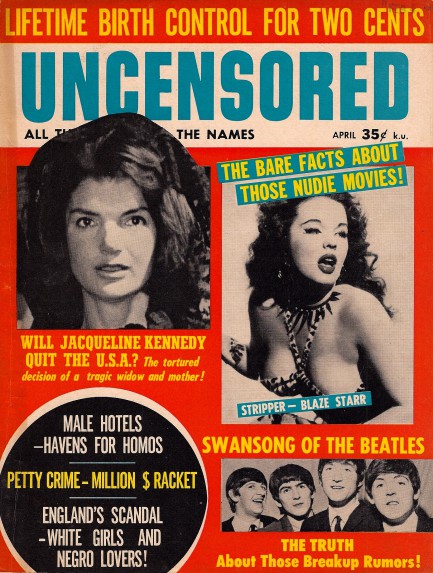
Above is the front of a copy of Uncensored magazine that appeared today in 1965 with cover stars Jackie O., Blaze Starr, and—in a sign of changing times—the Beatles. Inside the magazine you get sin and skin in the form of East German sex camps, nudity in international cinema, exotic dancer Marlene MacLane, transgender entertainer Christine Jorgensen, and call girl Christine Keeler, who, Uncensored reminds readers yet again, had lovers with skin darker than hers. And according to journalist Bill Jeffree, so did thousands of other British women. What had the world come to? These old tabloids often contain photos that haven’t made it online yet, and from this one we’re happy to upload a cool shot of Keeler, a snap of John F. Kennedy, Jr. as a toddler, and a rare vision of Elizabeth Taylor strolling a Mediterranean boardwalk in her bikini. We have about twenty scans below and more from Uncensored to come.
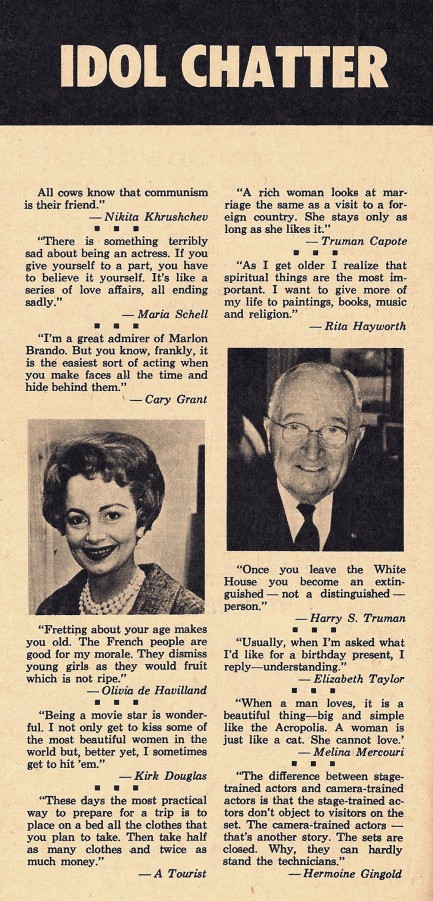
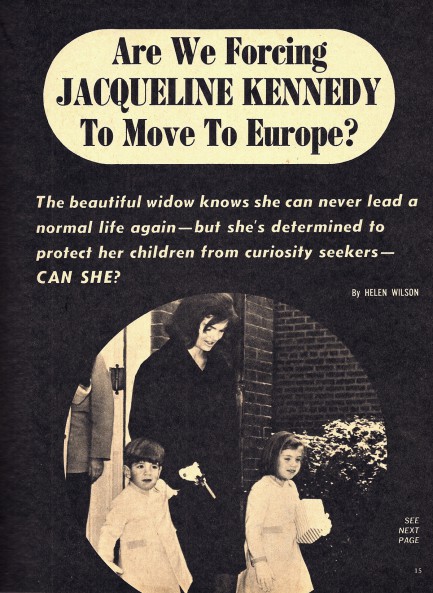
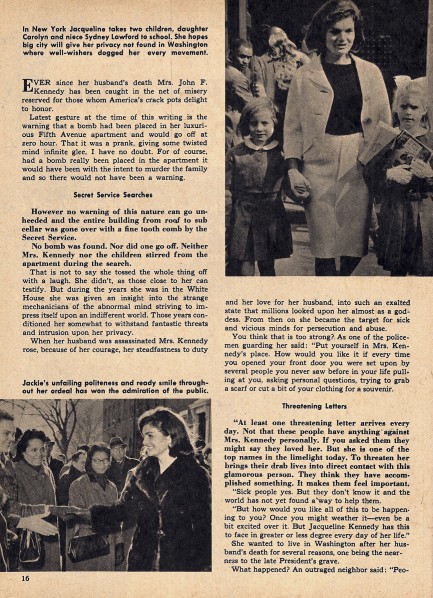
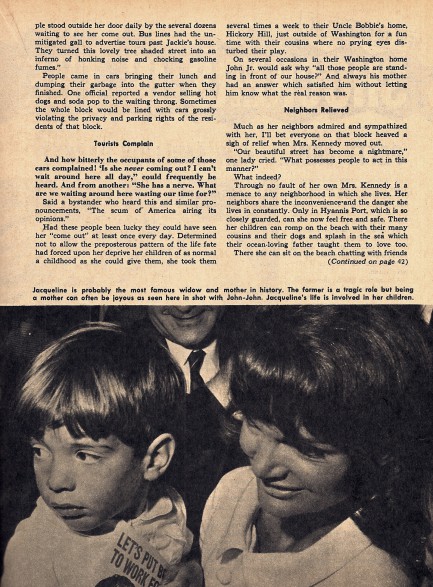
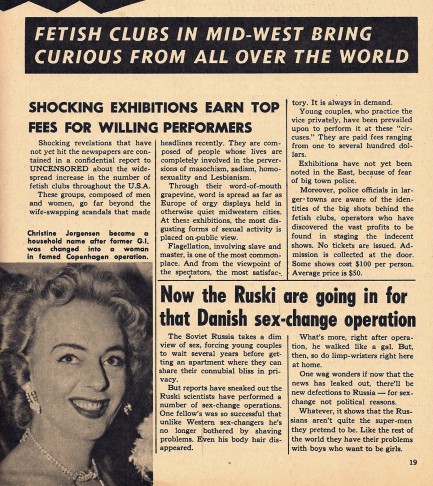
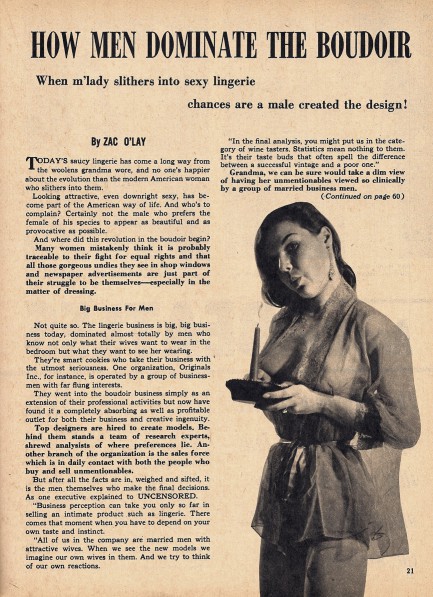
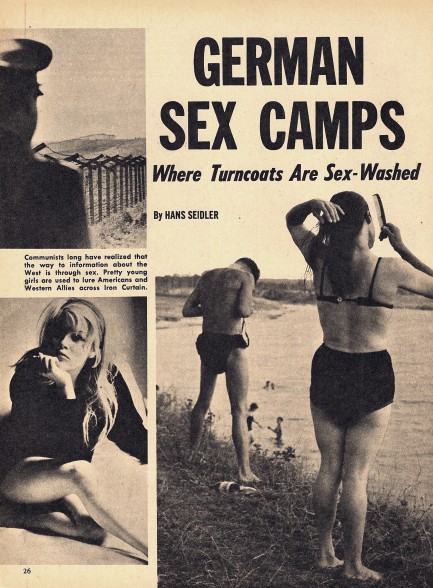
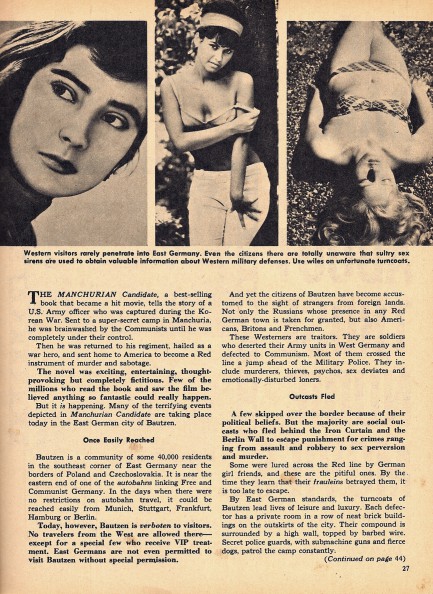
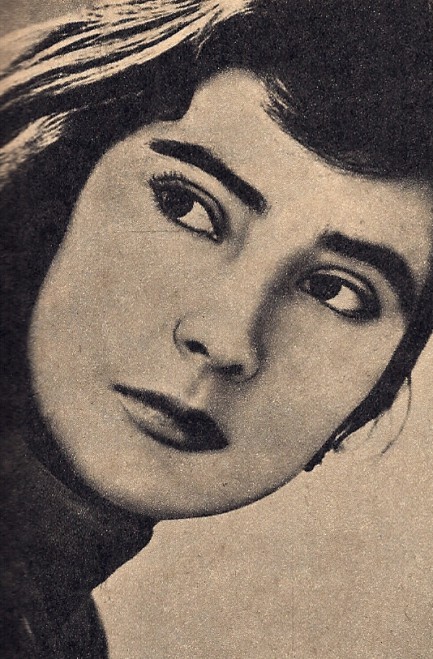
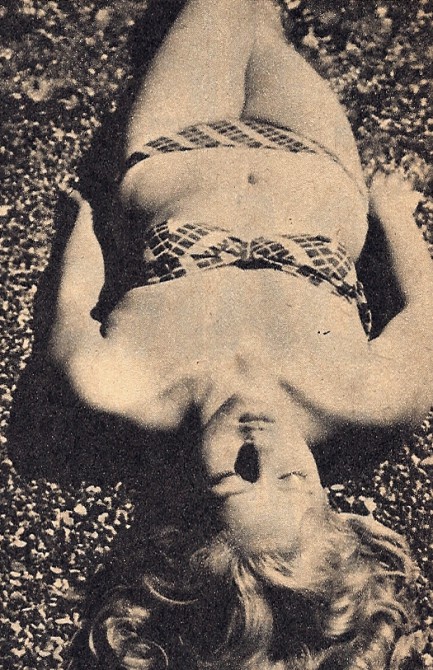
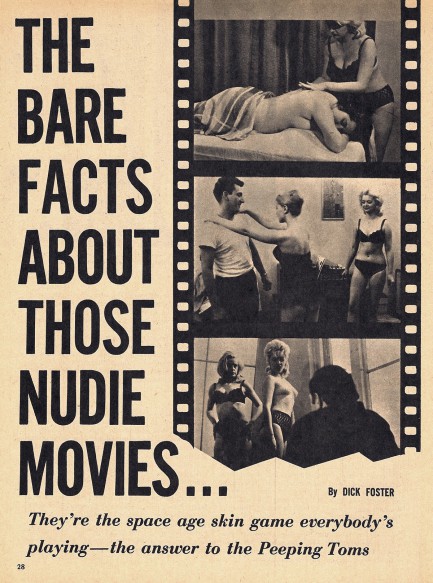
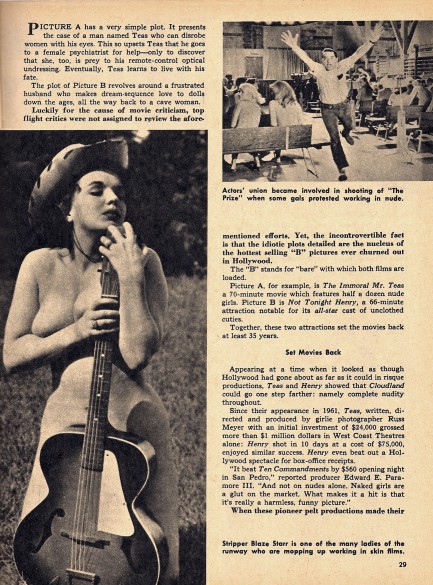
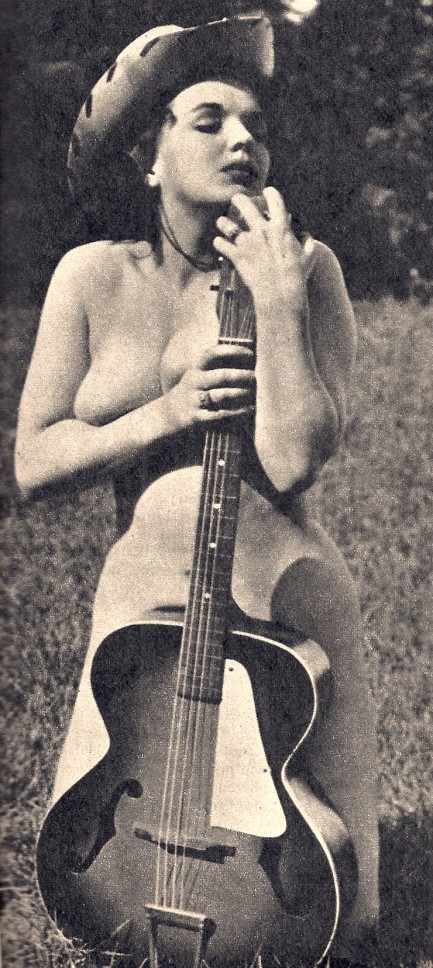
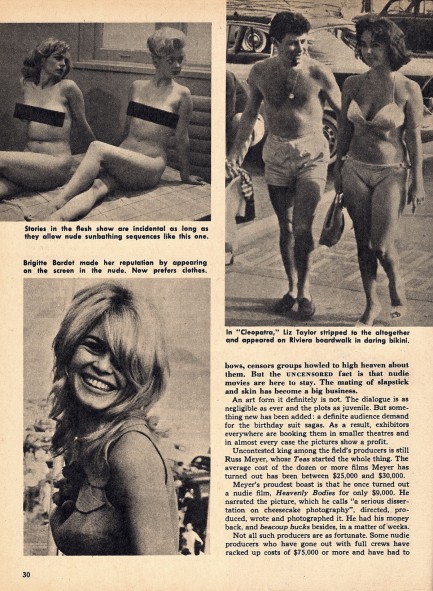
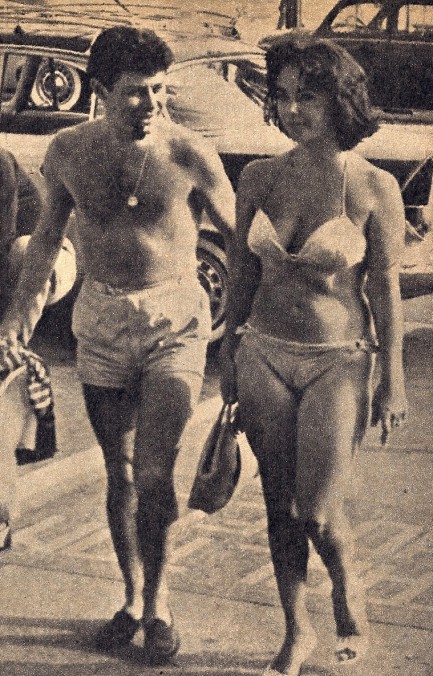
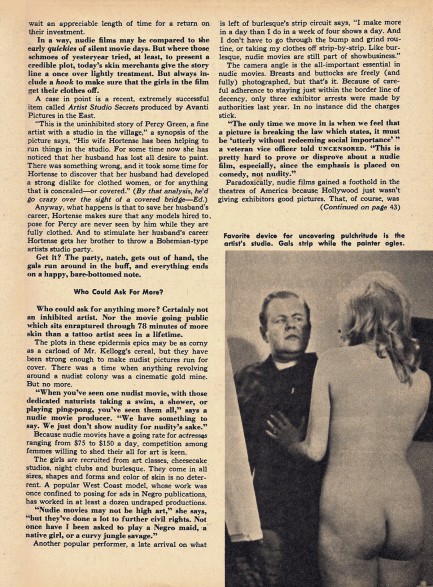
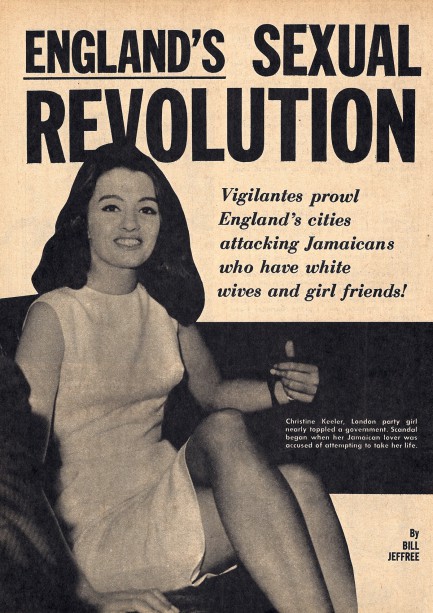
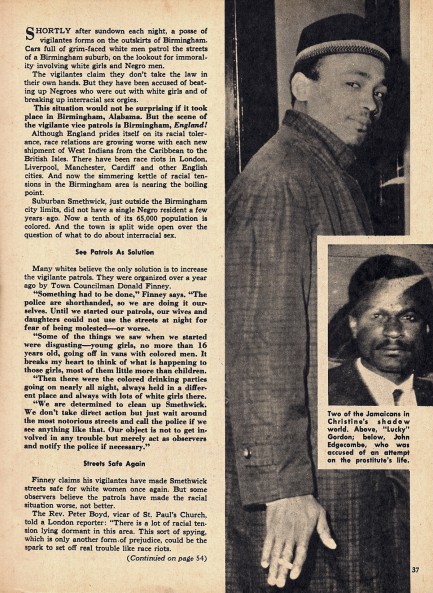
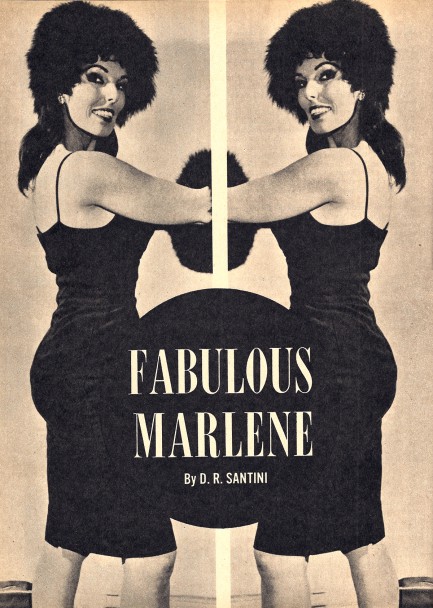
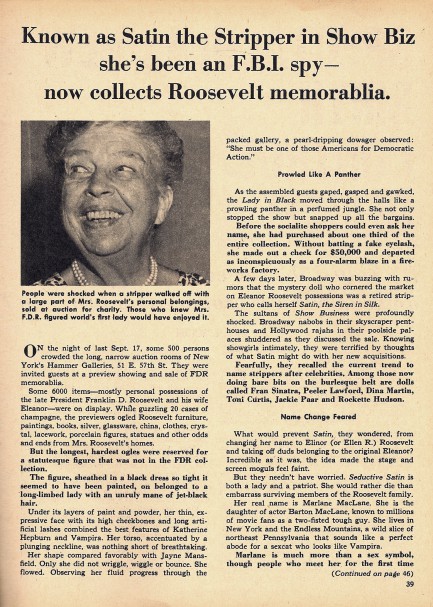

| Vintage Pulp | Nov 13 2013 |

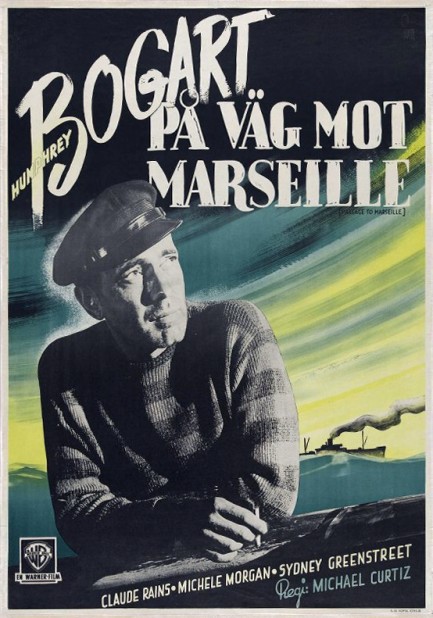
We’ve seen nearly every Humphrey Bogart movie but had been warned away from Passage to Marseille. We finally watched it last night and the haters were right—it’s substantially below standard. You have Casablanca director Michael Curtiz at the helm and Casablanca alumni Bogart, Claude Rains, Peter Lorre, and Sydney Greenstreet in front of the camera, along with the lovely Michèle Morgan in the female lead, but all their combined efforts cannot elevate this clumsily written propaganda piece. Curtiz is not to blame—his direction is functional and James Wong Howe photographs everything beautifully. Likewise, Bogart manages his role adequately, Lorre and his emotive brow are put to ample use, and Rains dons an eyepatch and permafrown to bring some gravity to matters.
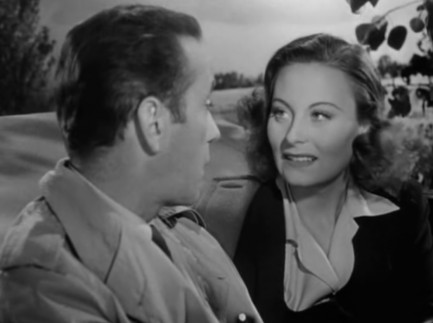
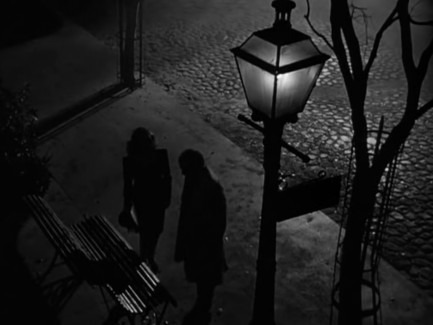
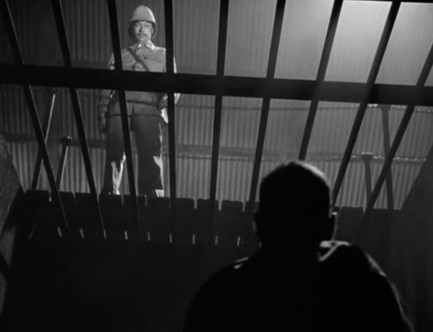
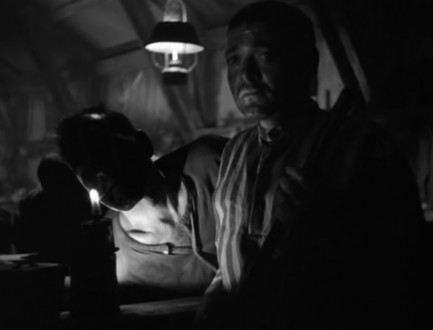
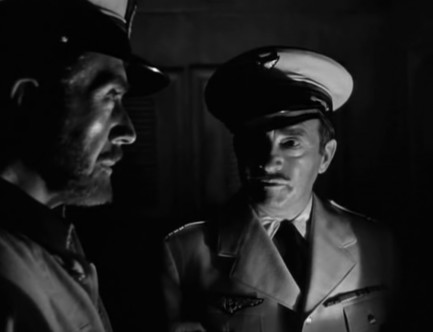
| Vintage Pulp | Aug 12 2013 |

Today we have another cover collection for you. We had noticed quite a few pieces of pulp/sleaze art featuring syringes as a central element, so we’ve gathered up twenty examples, with art by Michel Gourdon and others. Some of these are from Flickr, so thanks to the original uploaders.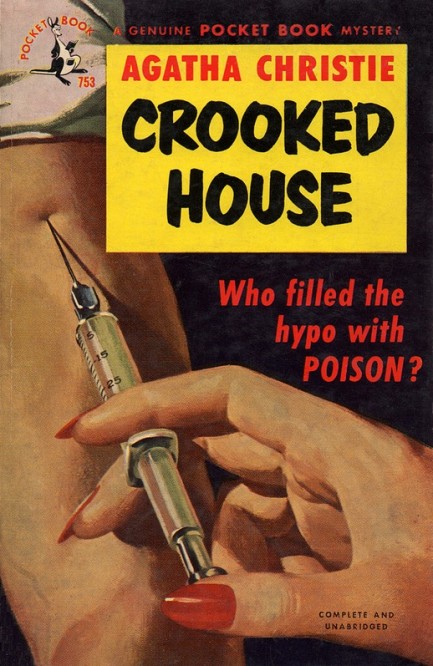
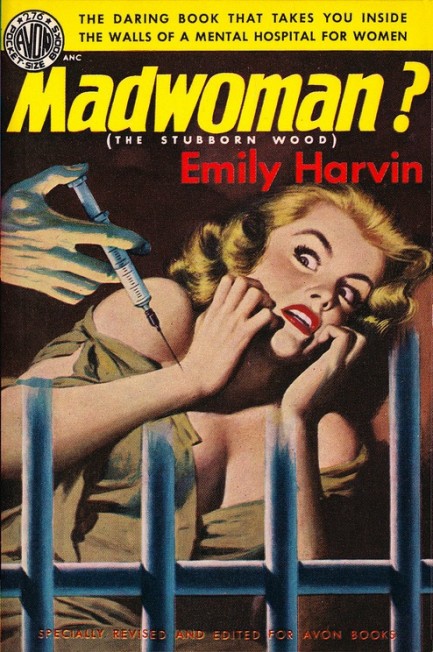
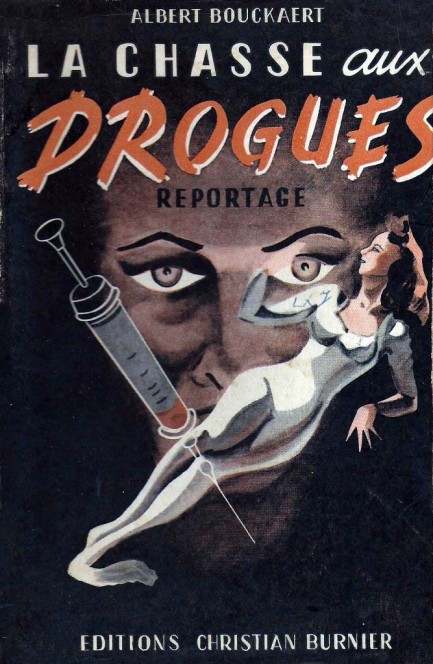
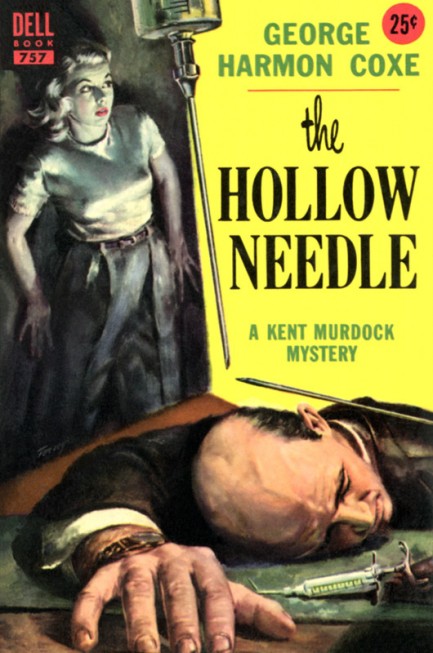
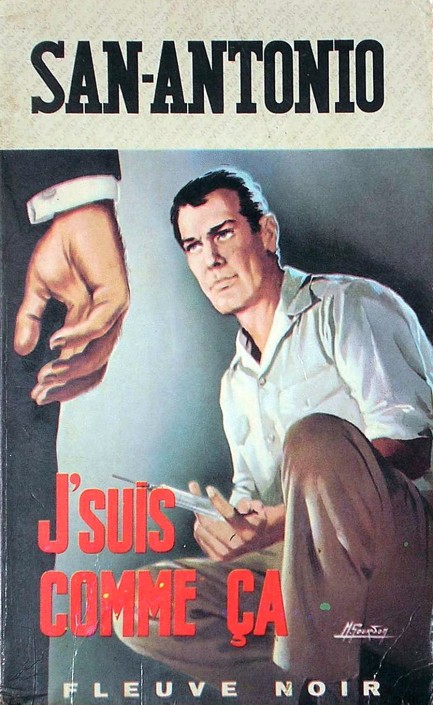
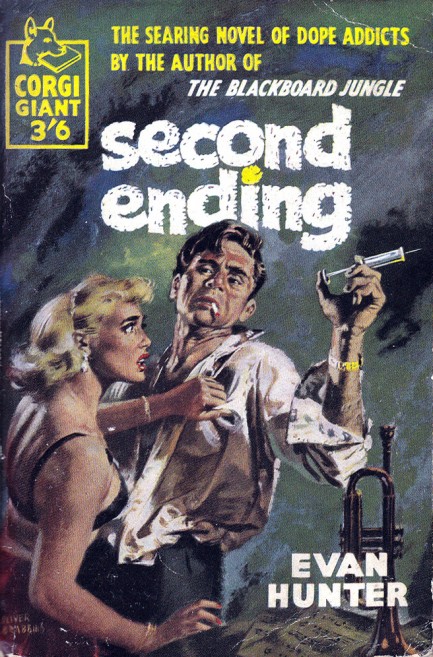
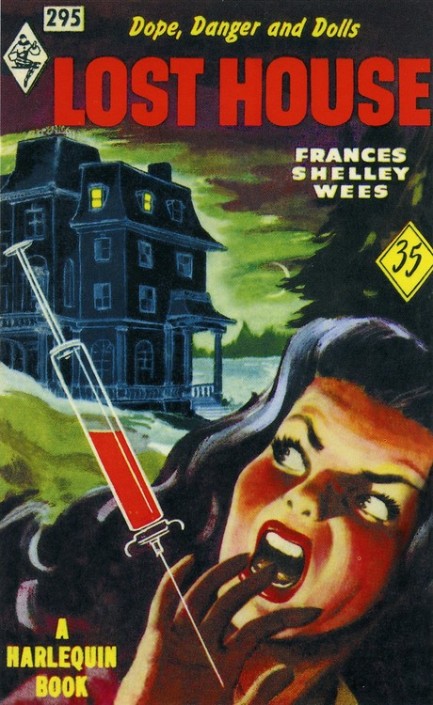
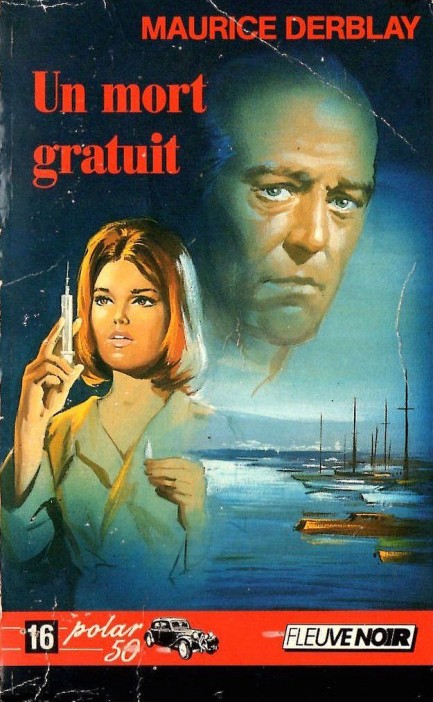
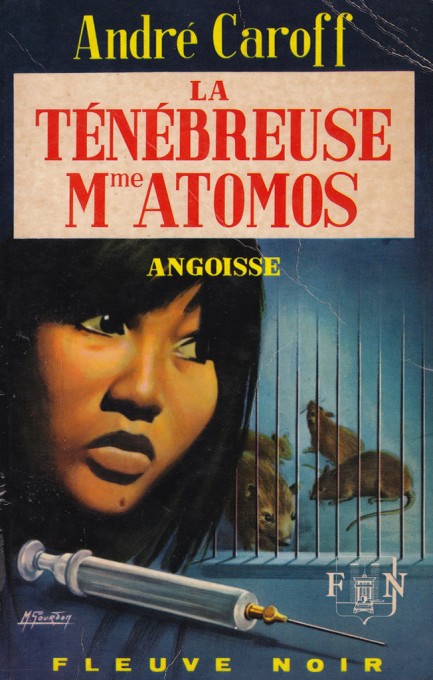
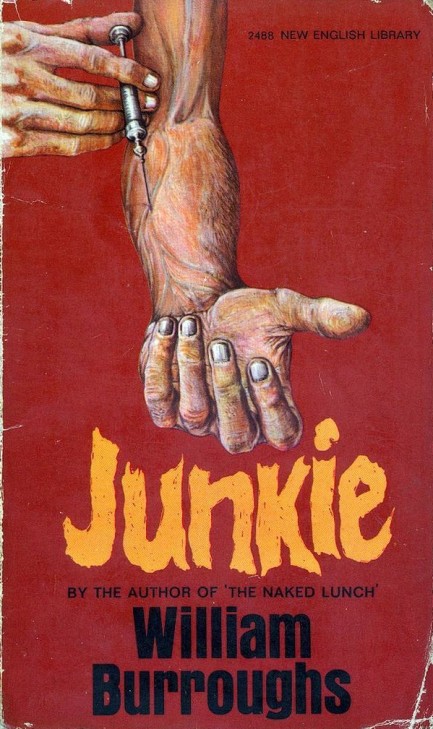
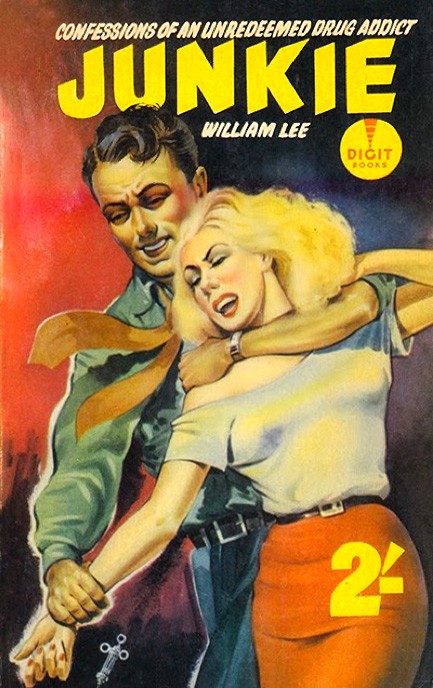
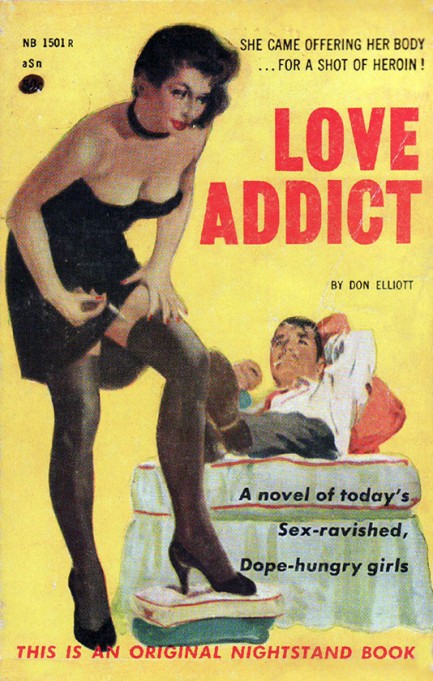
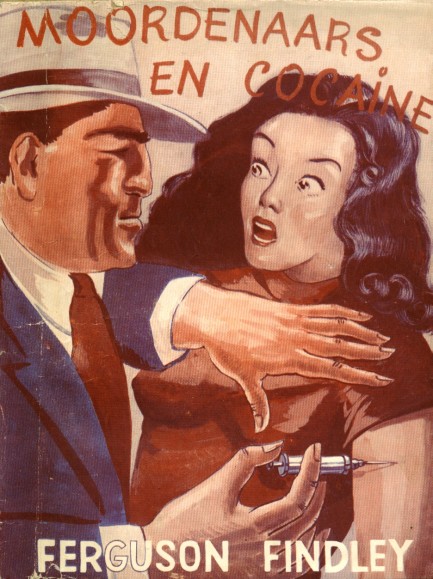
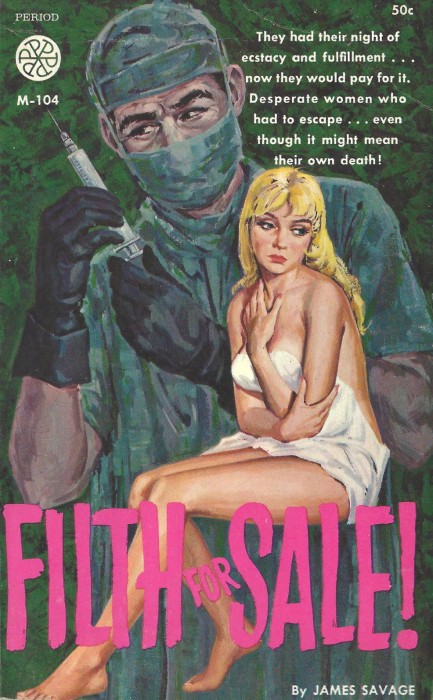
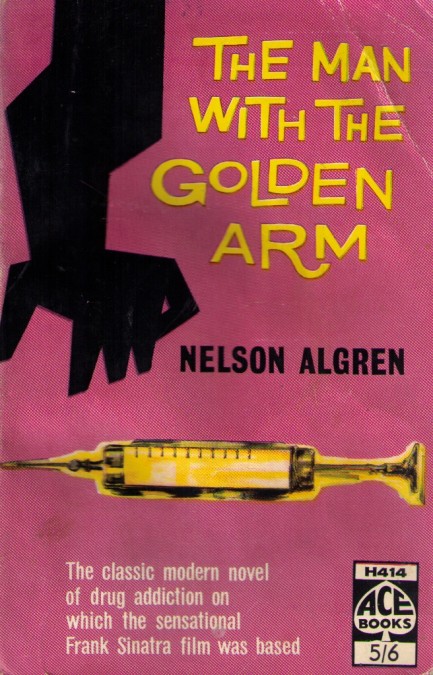
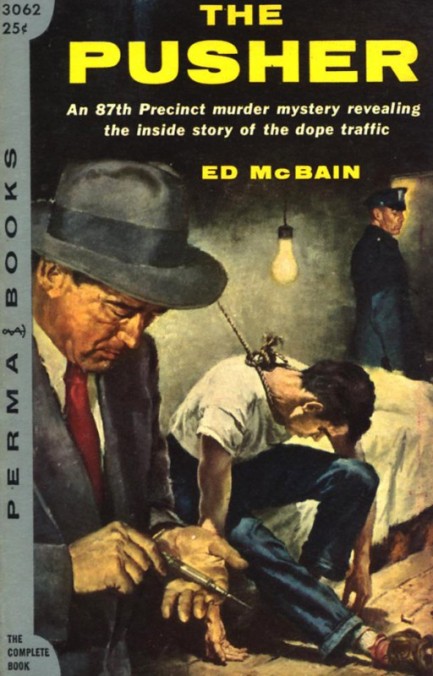
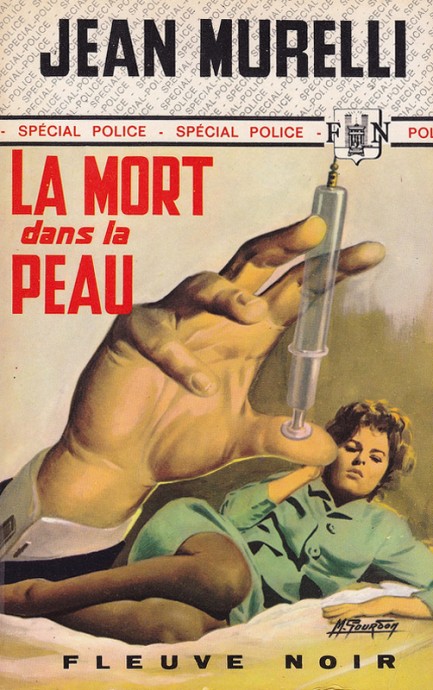
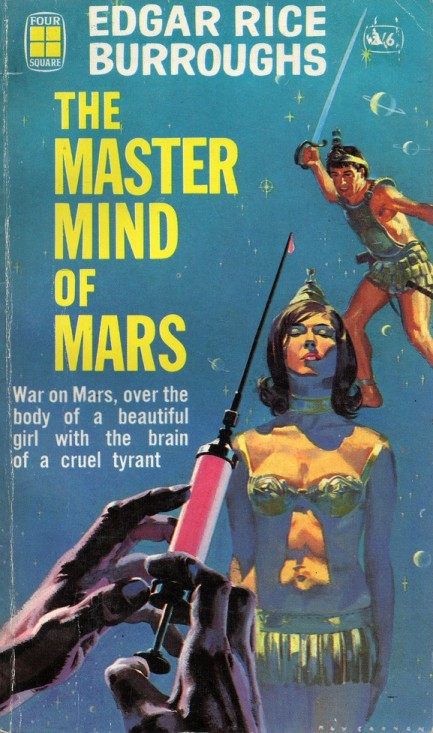
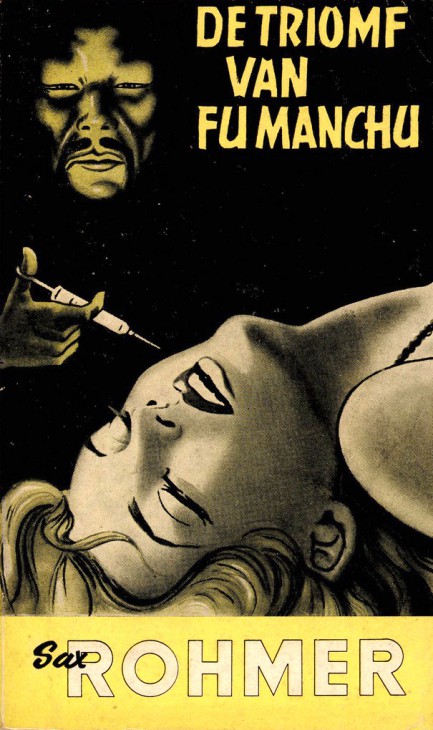
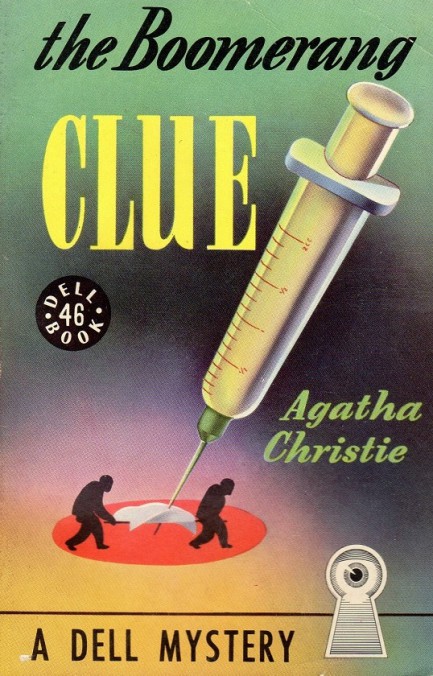
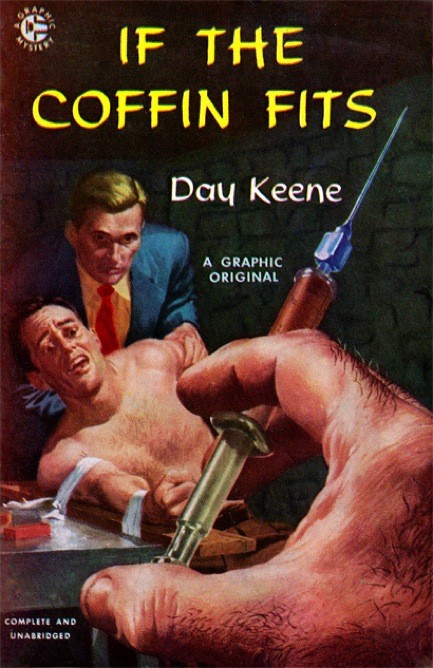
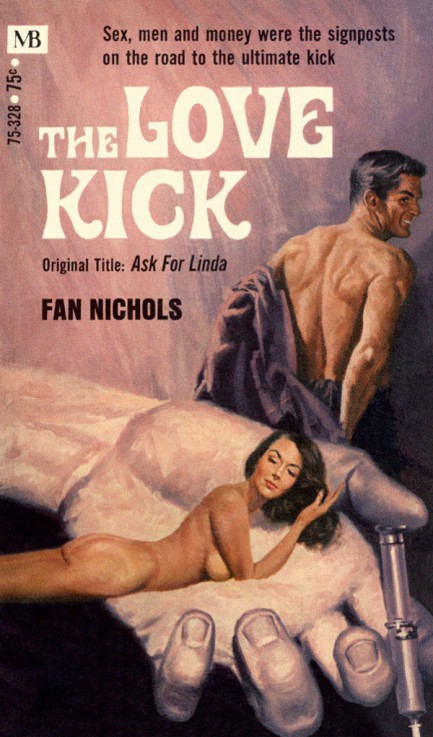
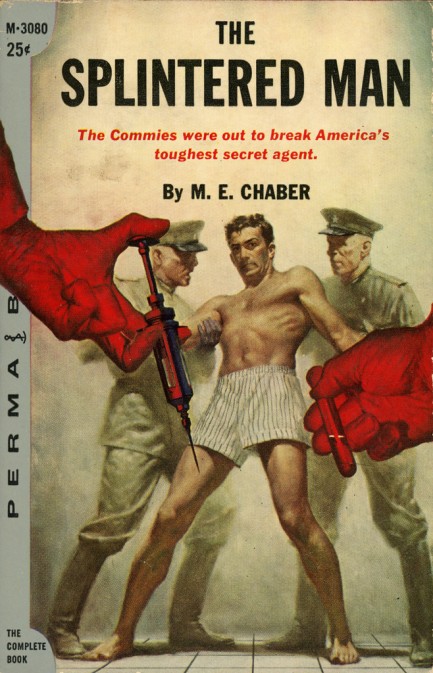
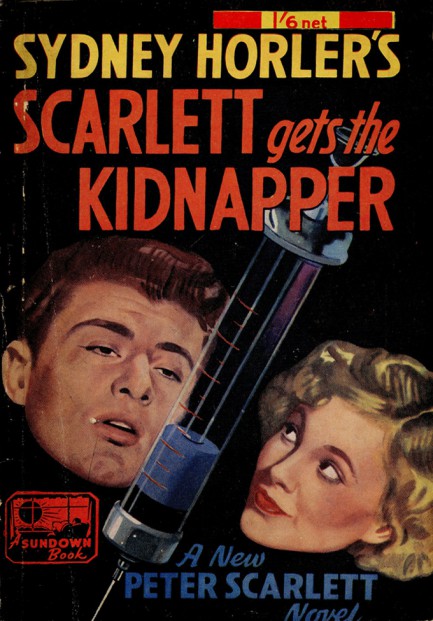
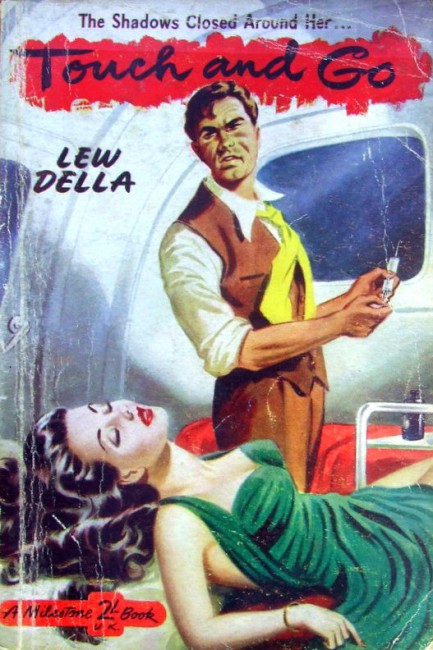
| Vintage Pulp | May 20 2013 |

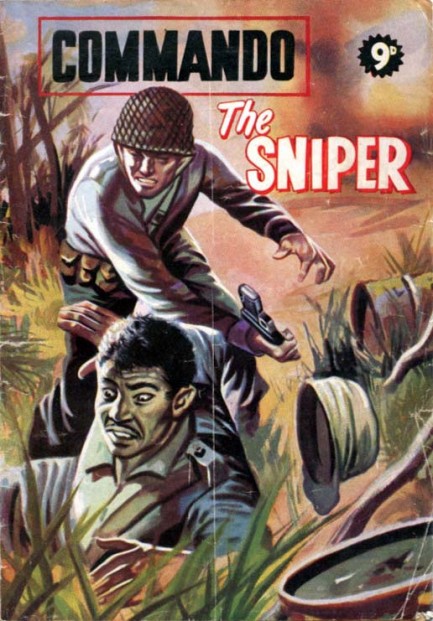
During the 1960s the Cleveland Publishing Company, which was based in Sydney, Australia, printed quite a lot of books like the one above—i.e., World War II adventures that in retrospect are subtly racist. Well, actually, who are we kidding? Retrospect and subtlety have nothing to do with it. Even in the context of the 1960s these were overtly racist books featuring depraved and heinous Japanese adversaries putting Aussie soldiers through hell, often in jungle prison camps. We have other examples we’ll share later, but this is probably the most interesting of them, art-wise, with its devilish villain painted camouflage green. Mack Kenton, the author here, wrote many war books for Cleveland, including Beachhead, Operation Solo, Ordeal of the Damned, Fight or Die, et. al., but despite his extensive bibliography there isn’t much info on him. Uncredited artist as well. It’s amusing to imagine that both author and illustrator disavowed themselves from this dubious work, but that probably isn’t what happened. The book is just obscure. As always we’ll dig for more.
| Vintage Pulp | Apr 2 2013 |


Over the last few months we’ve culled together a collection of Australian World War II and Korean War paperback covers from the 1960s and today seemed like a good day to share these with you. All of the books are from Horwitz Publishing, the family owned house established in 1921 in Sydney by Israel and Ruth Horwitz. Upon its inception Horwitz published trade journals and sporting magazines, but eventually moved into popular fiction, pulps, and comic books. It was under son Stanley Horwitz, who took over the head spot at the company in 1956, that these books were published.
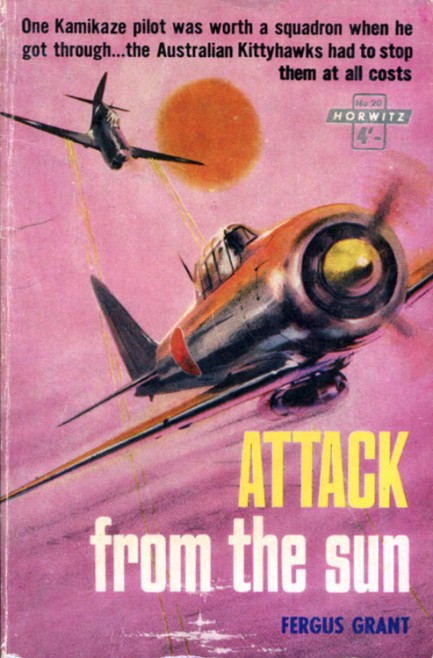
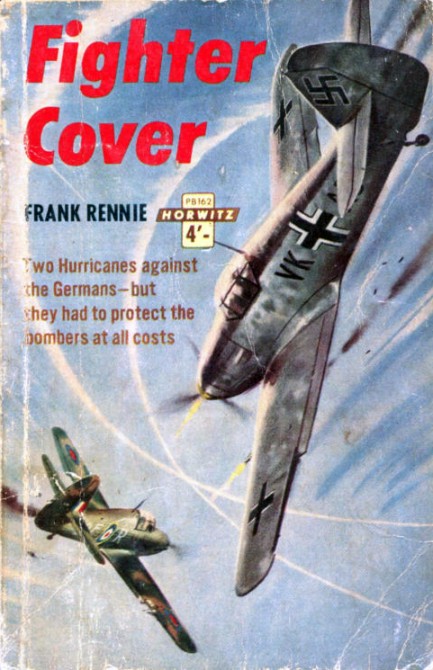
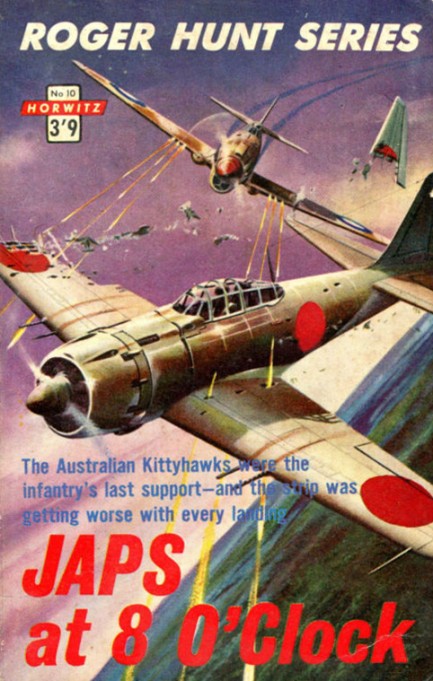
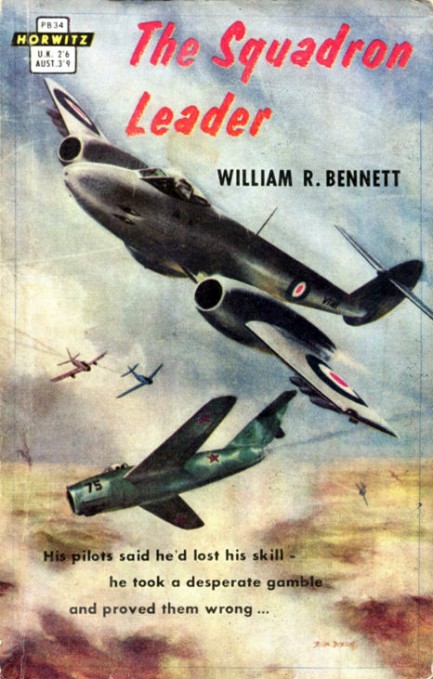



| Vintage Pulp | Mar 1 2013 |

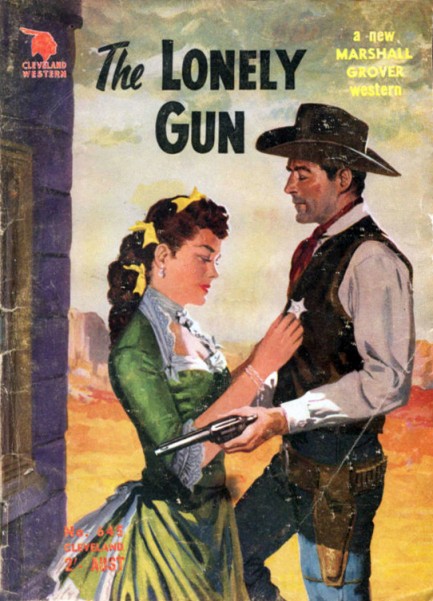
Printed by Sydney, Australia’s Cleveland Publishing Co., The Lonely Gun was written by the prolific author who called himself Marshall Grover, as well as Marshall McCoy, Val Sterling, Johnny Nelson, Shad Denver, Ward Brennan and other names. He was in reality Leonard F. Meares, and he published an astounding 746 novels. Amazingly, he didn’t even see his first on the shelf until he was thirty-four—young for publishing one’s first novel, but not for publishing the first of 746. Or better yet—look at it this way: that’s an average of just more than nineteen novels every year until he died at age seventy-two.
| Vintage Pulp | Feb 5 2012 |

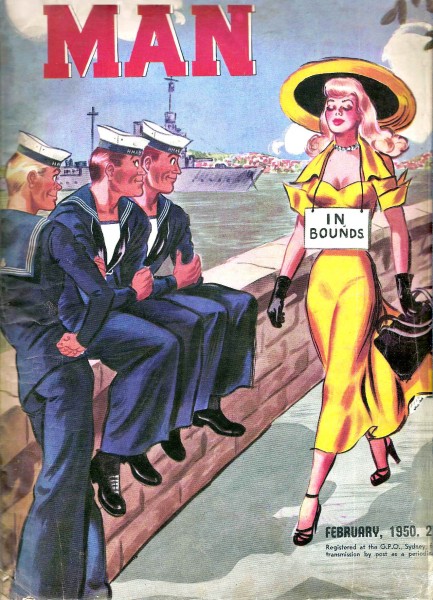
From Sydney, Australia’s Kenneth G. Murray, who is the same person who published the great magazine Adam, here’s his earliest mass market imprint—the succinctly named Man. The name leaves no doubt what the magazine is about, and indeed this issue from February 1950 features cover art of an available woman strutting her stuff for some virile sailors, and inside you get pin-ups, pulp style illustrations, fiction, and humor. We found this Man and a few others in an online archive. Below are some scans from today's, including a black and white photo about midway down of American actress Angela Greene. We'll have more coming from the others later.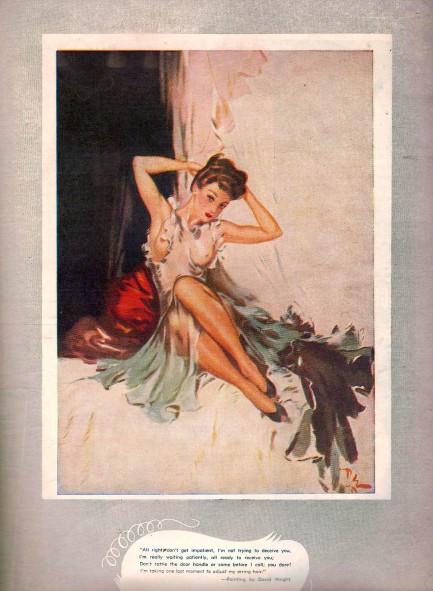
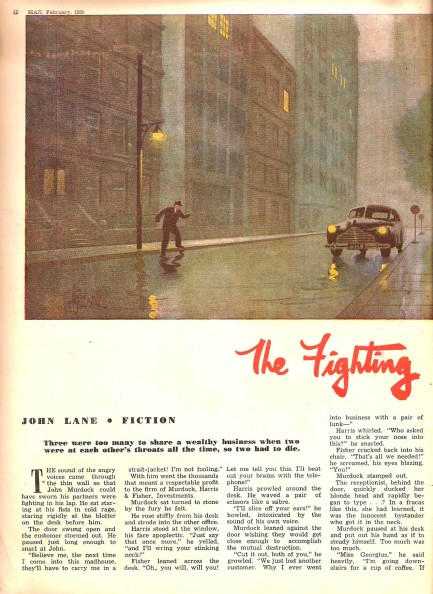
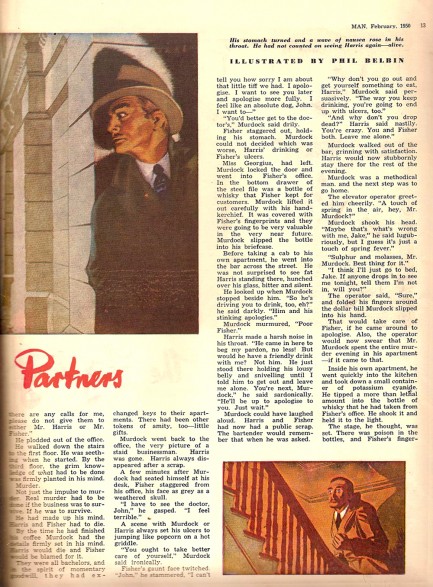
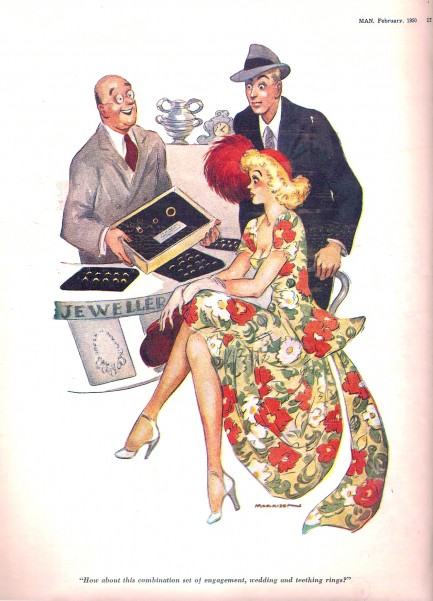
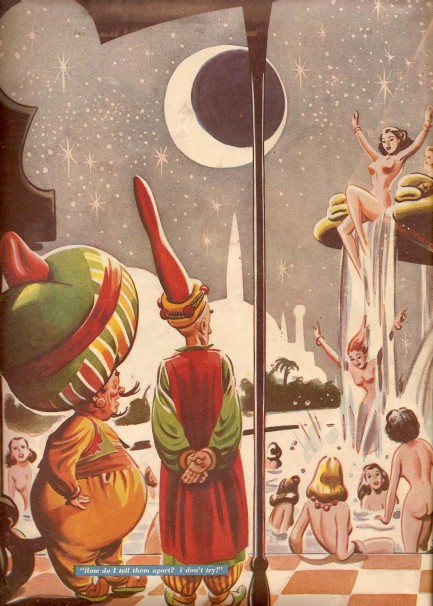
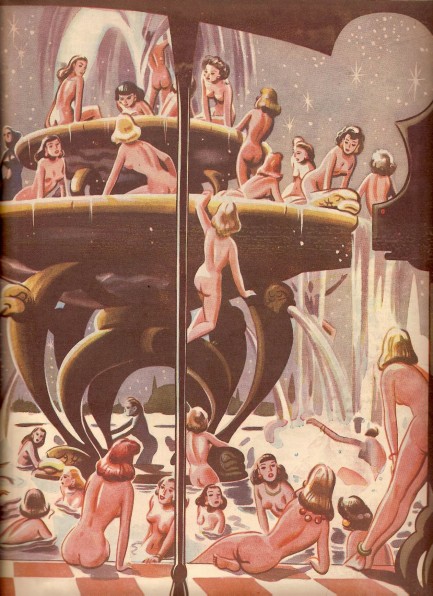
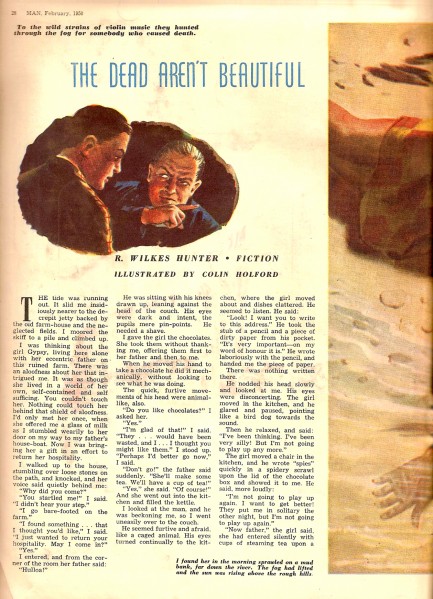
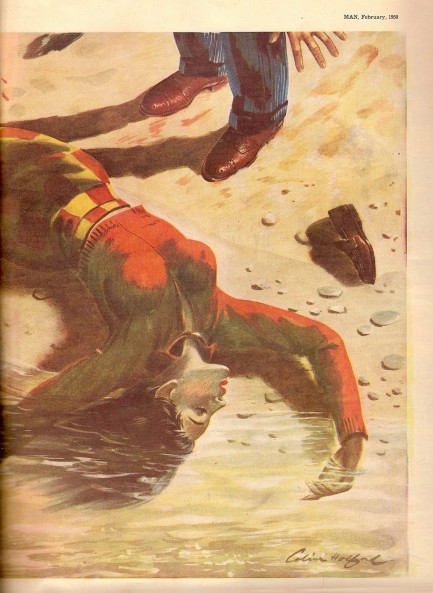
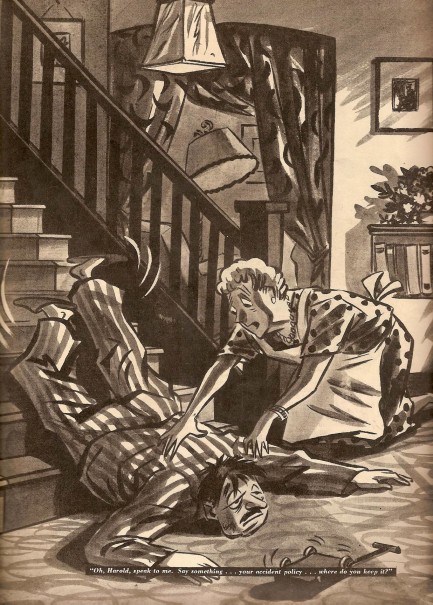
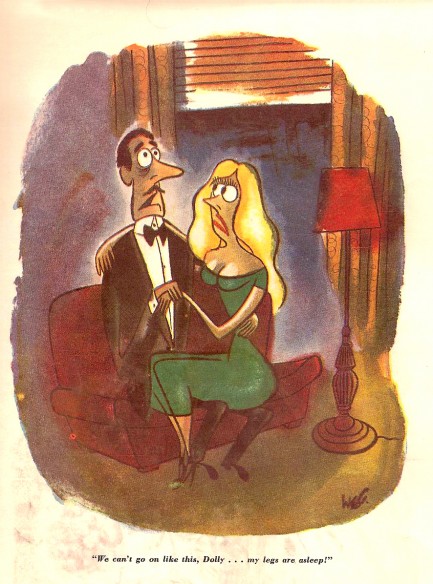
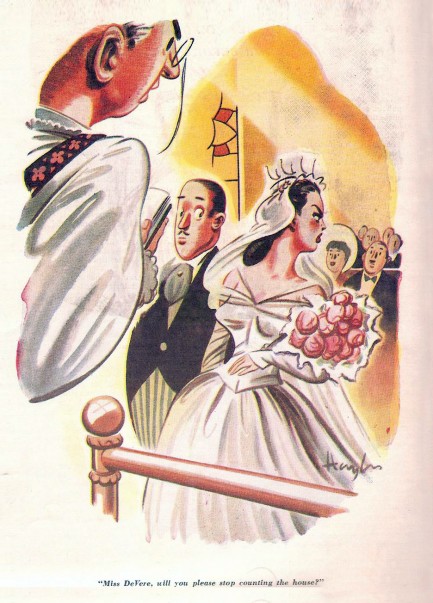
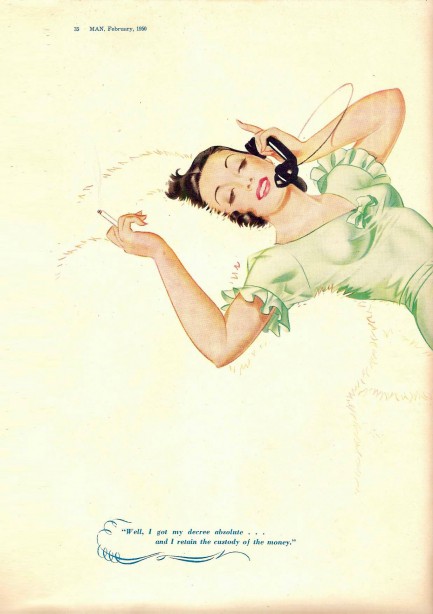
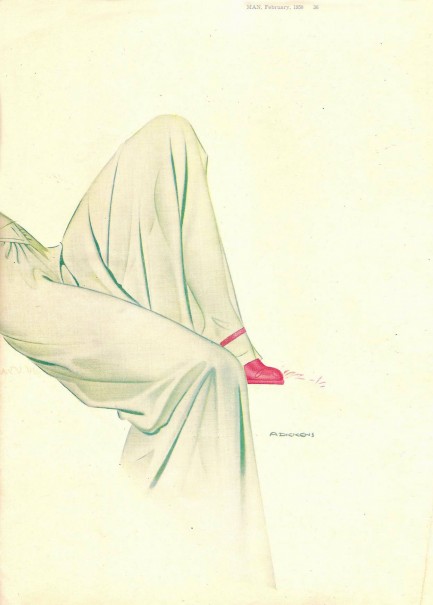
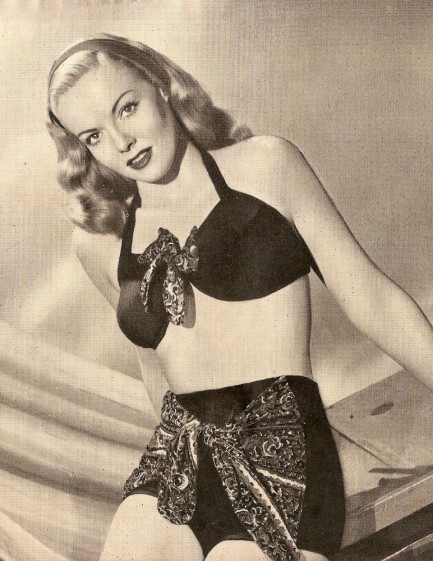
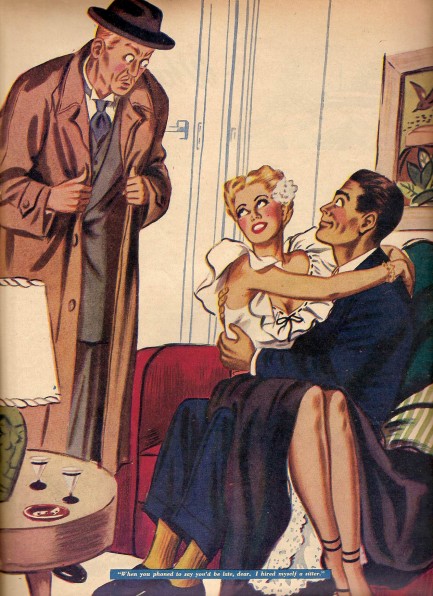
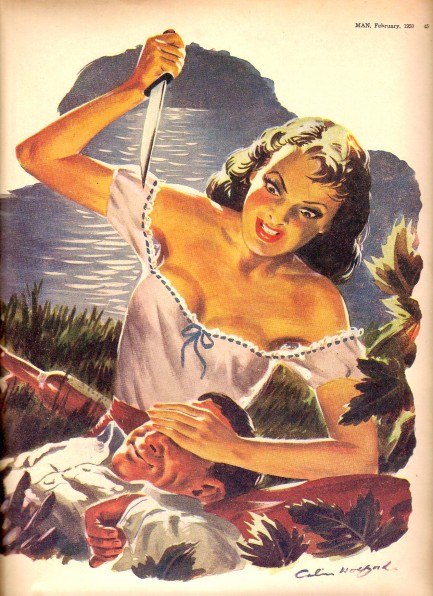
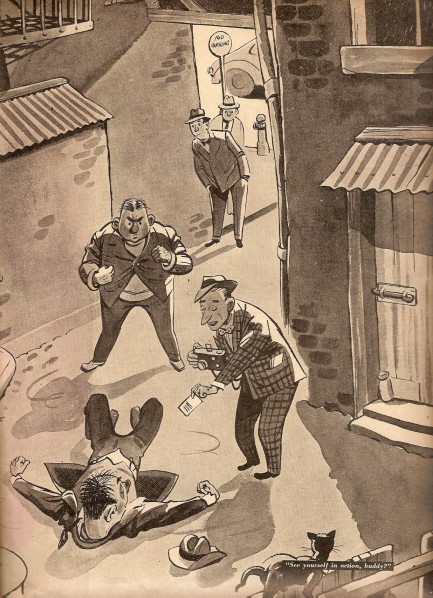
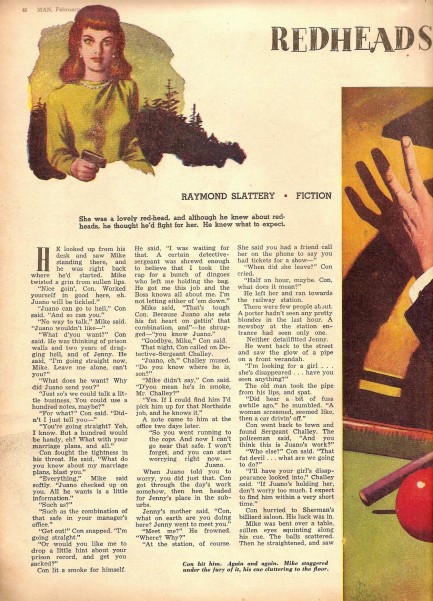
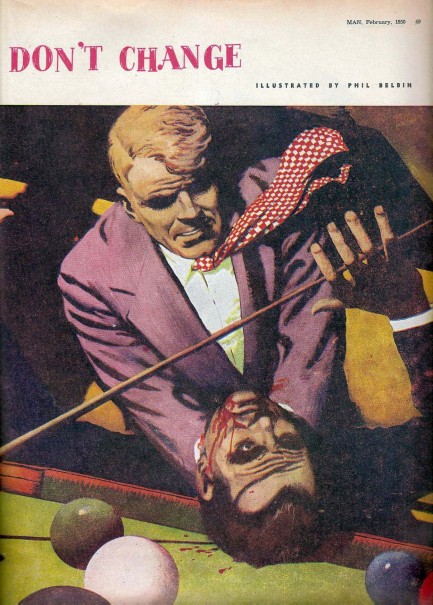
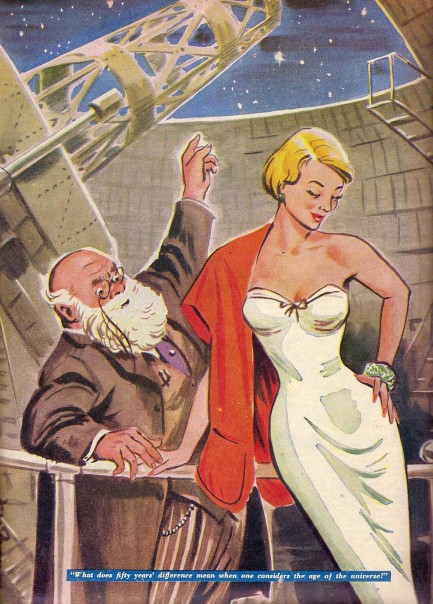
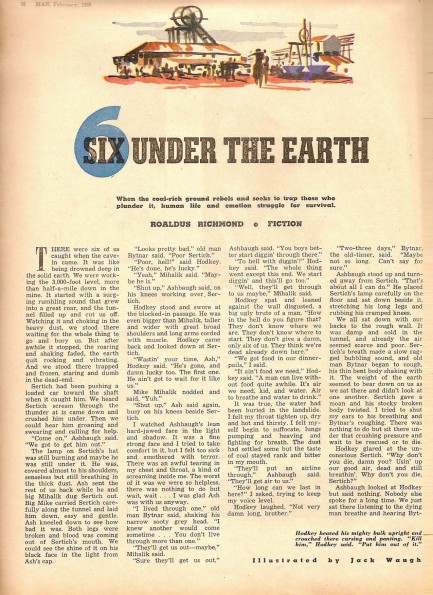
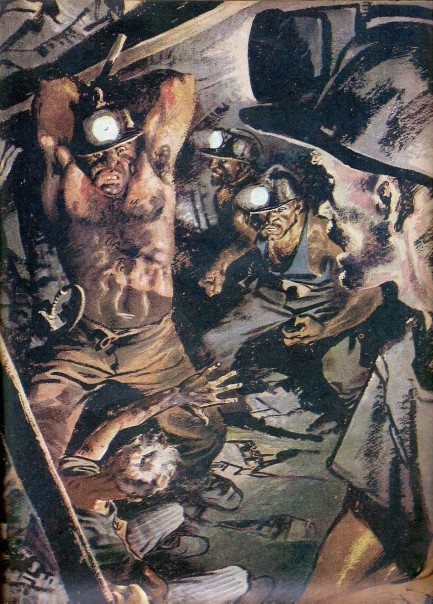
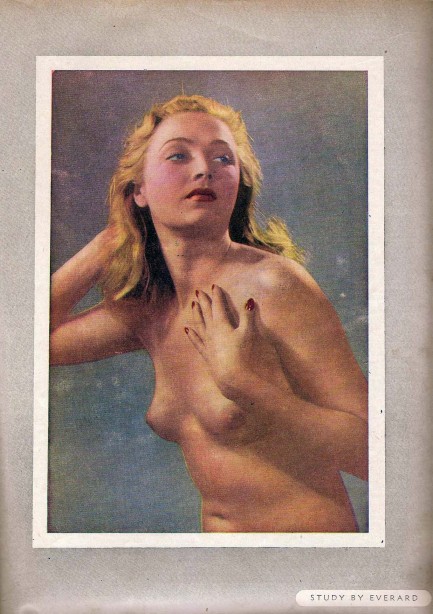
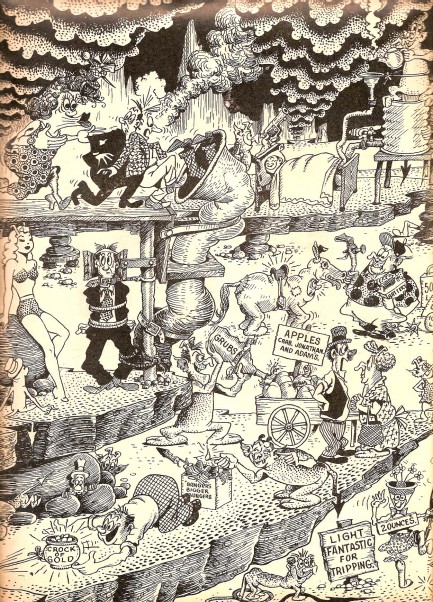
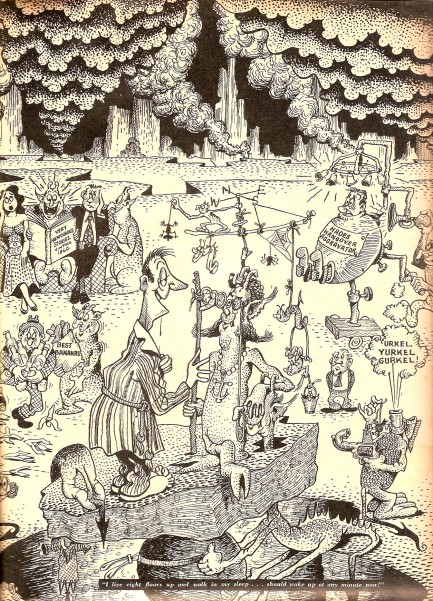
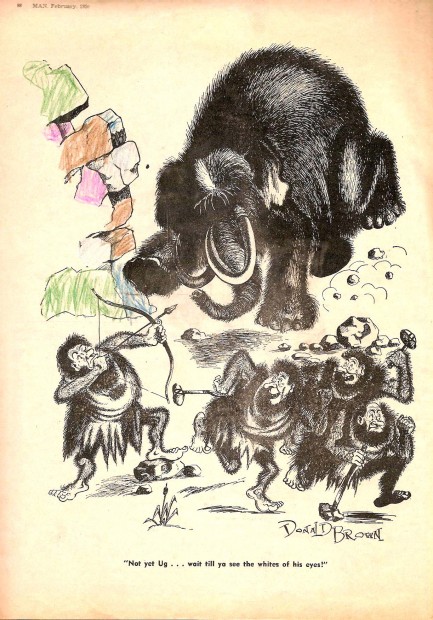
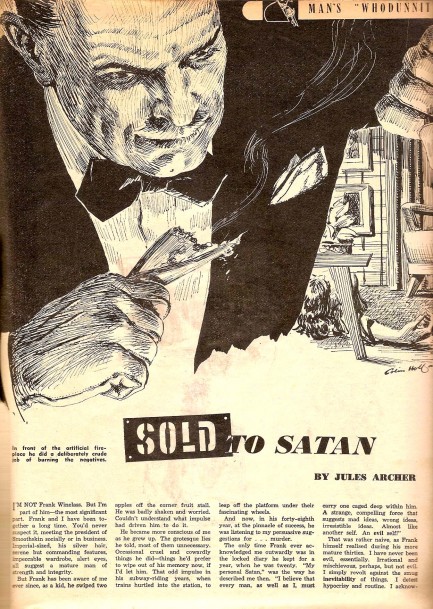
 |
 |




































































